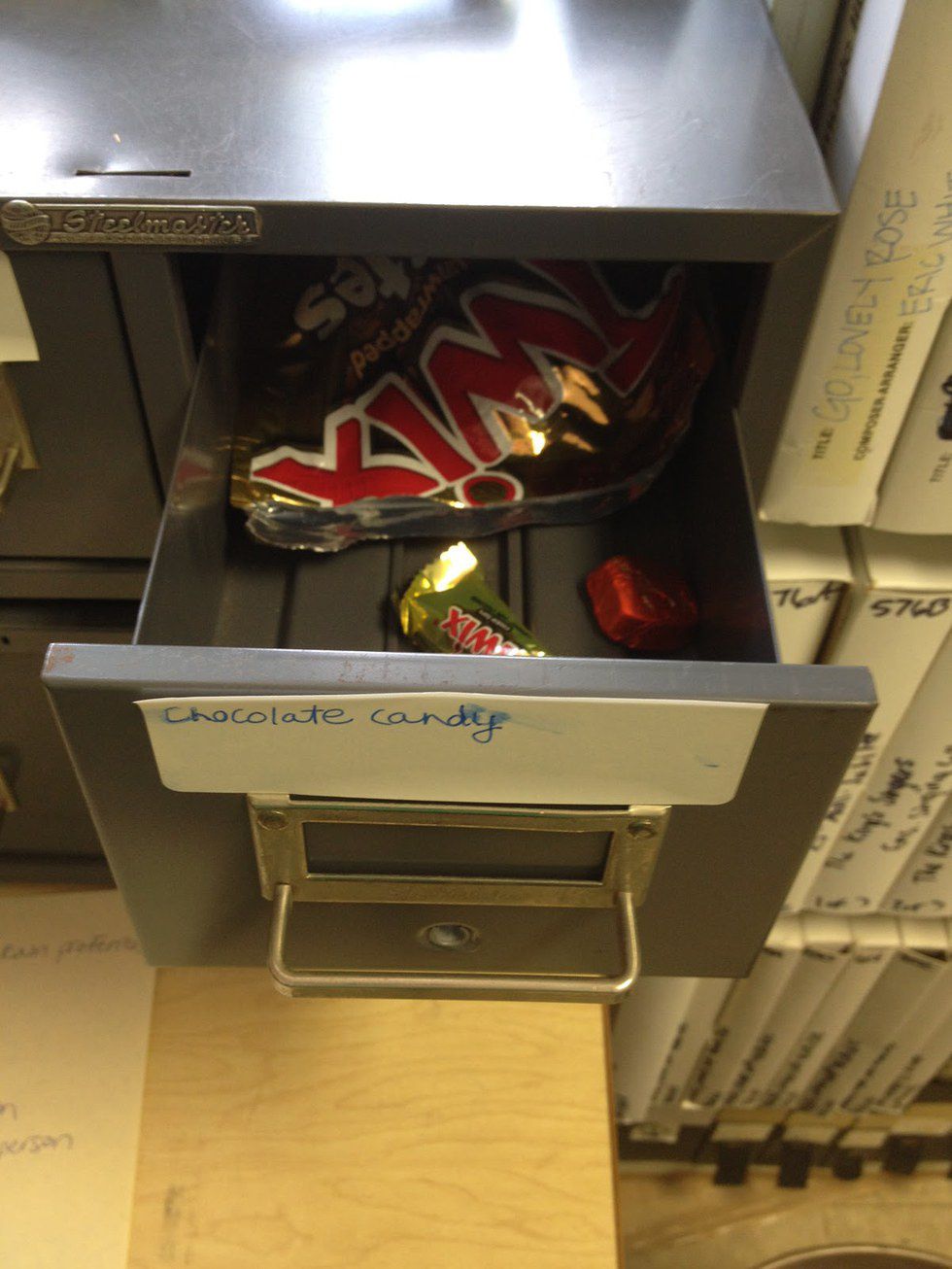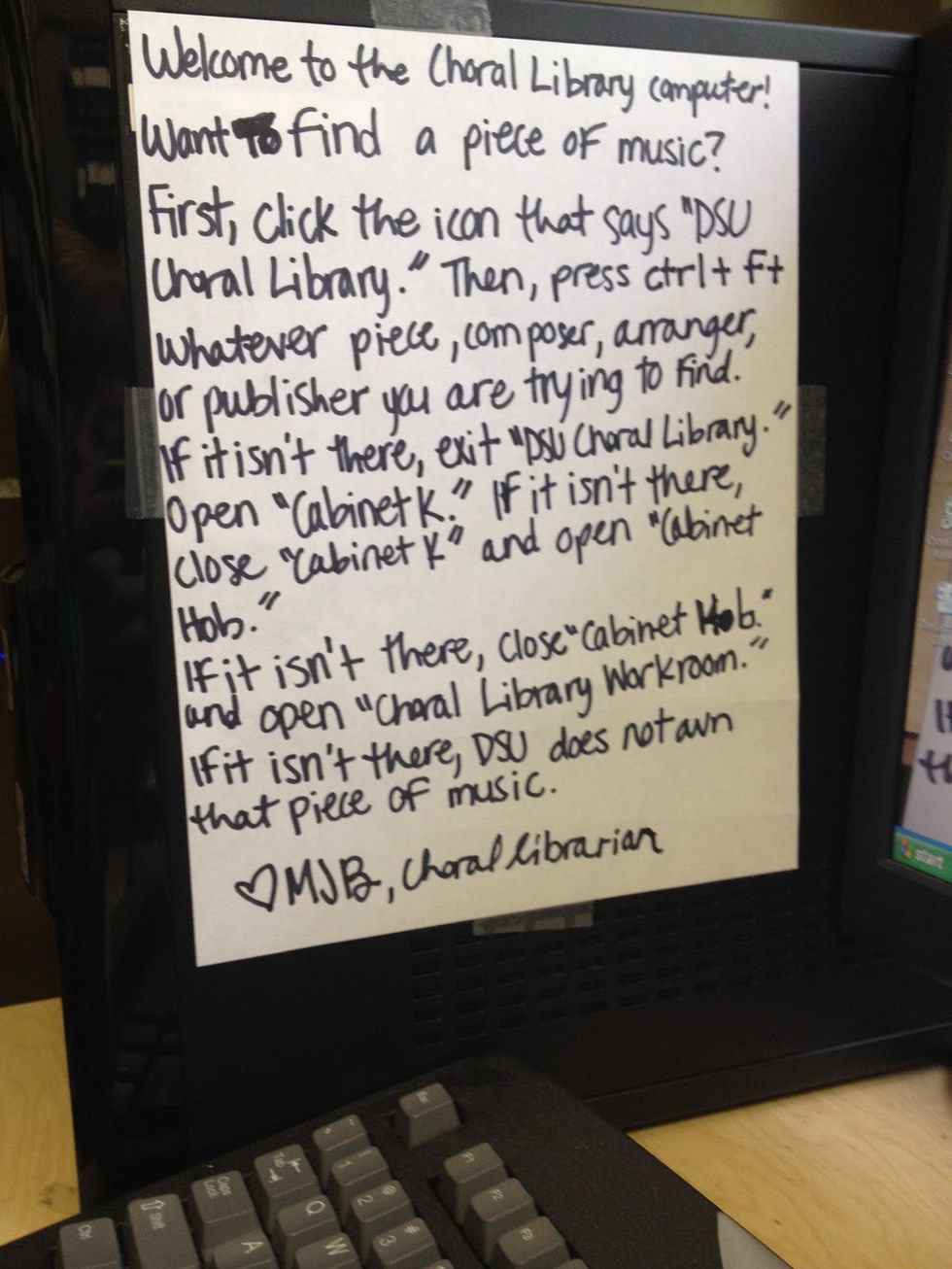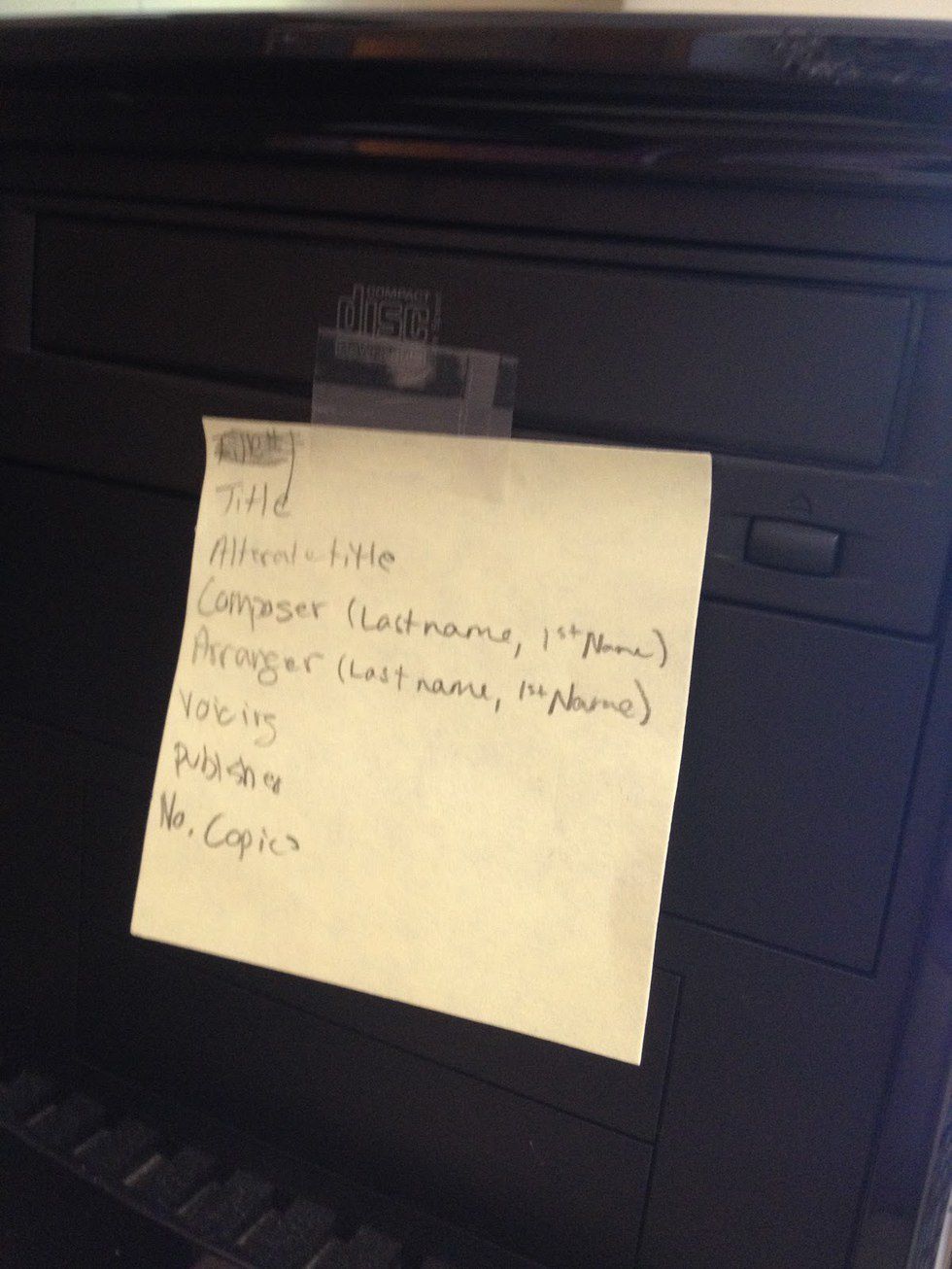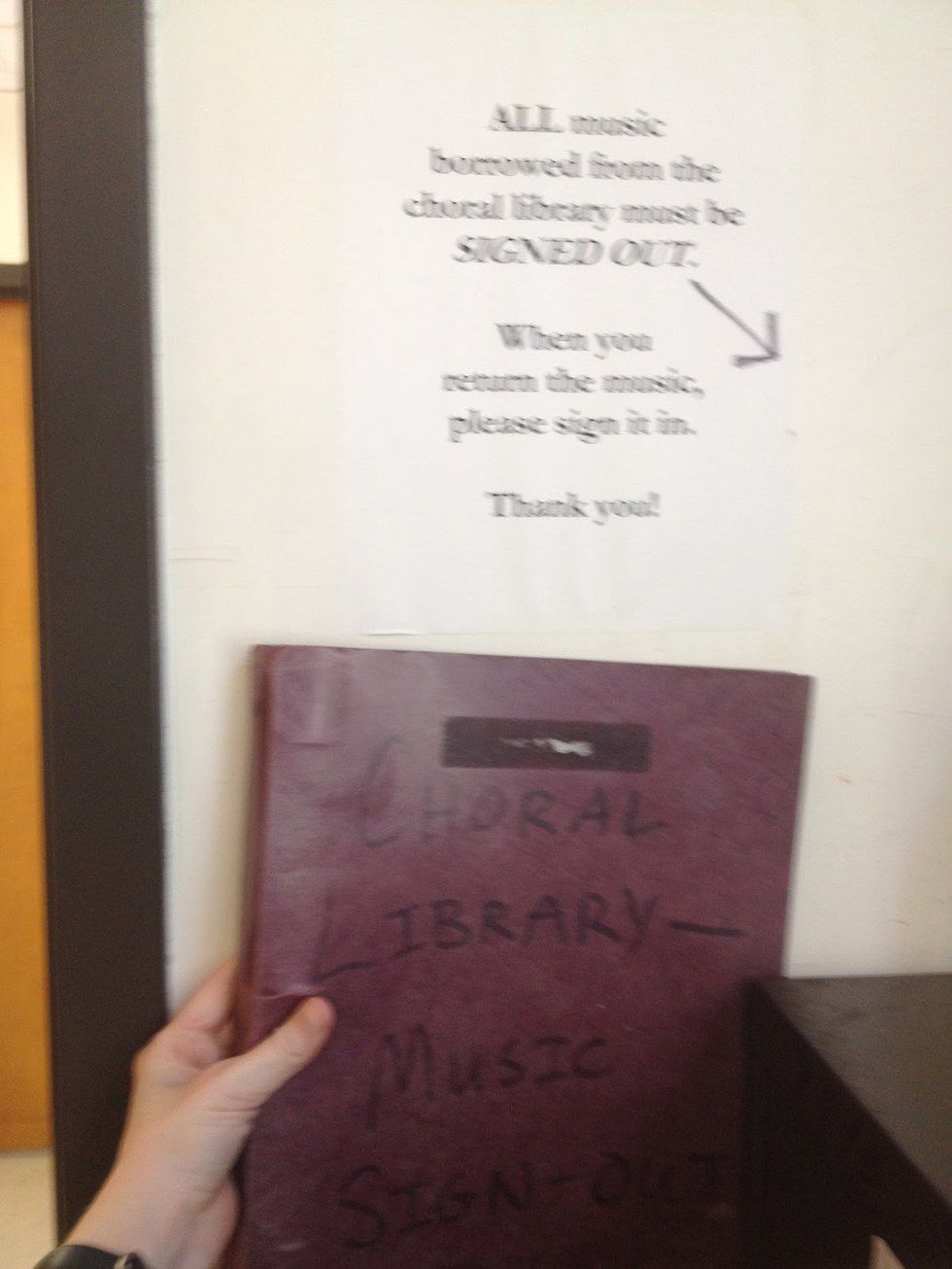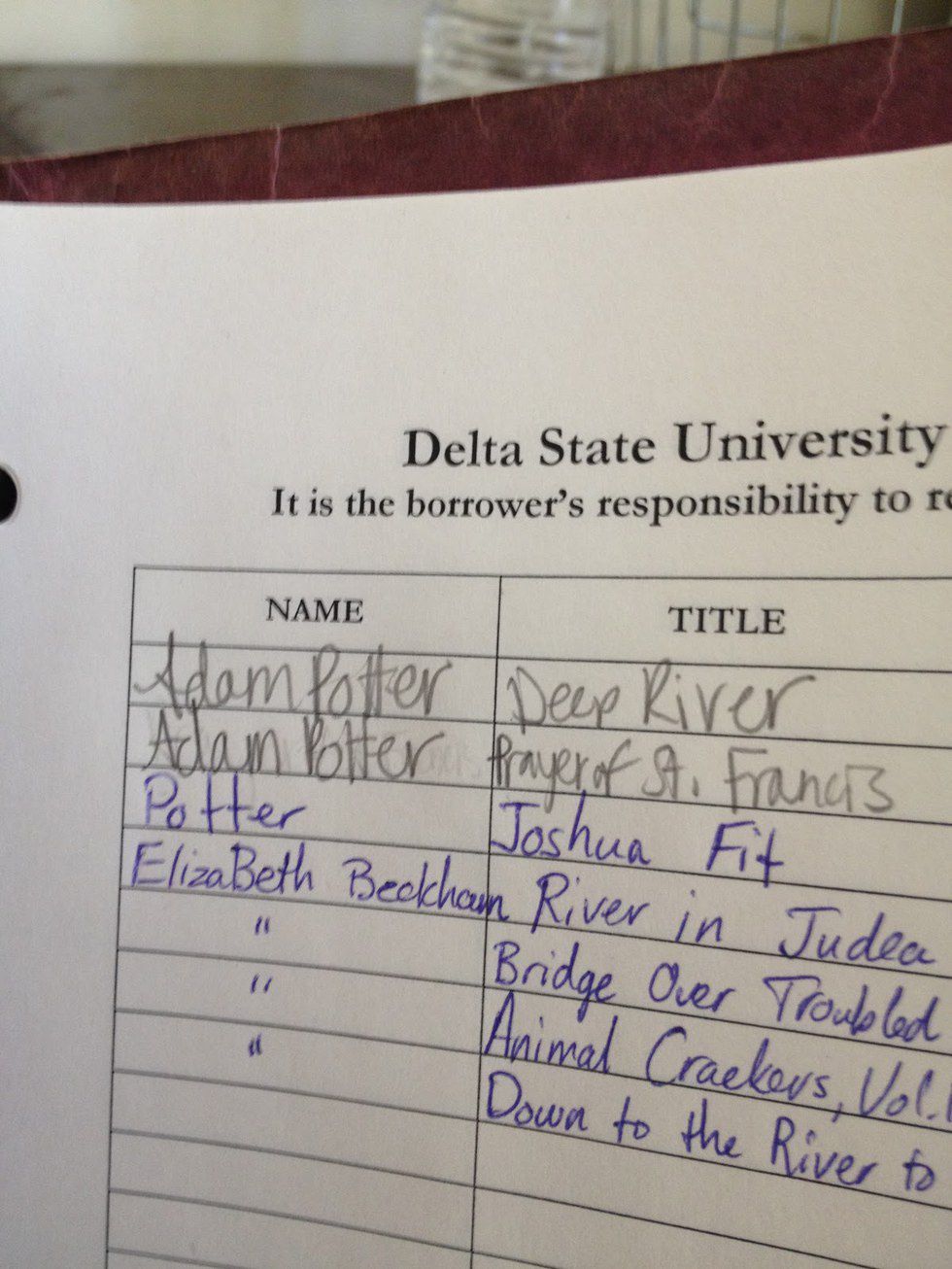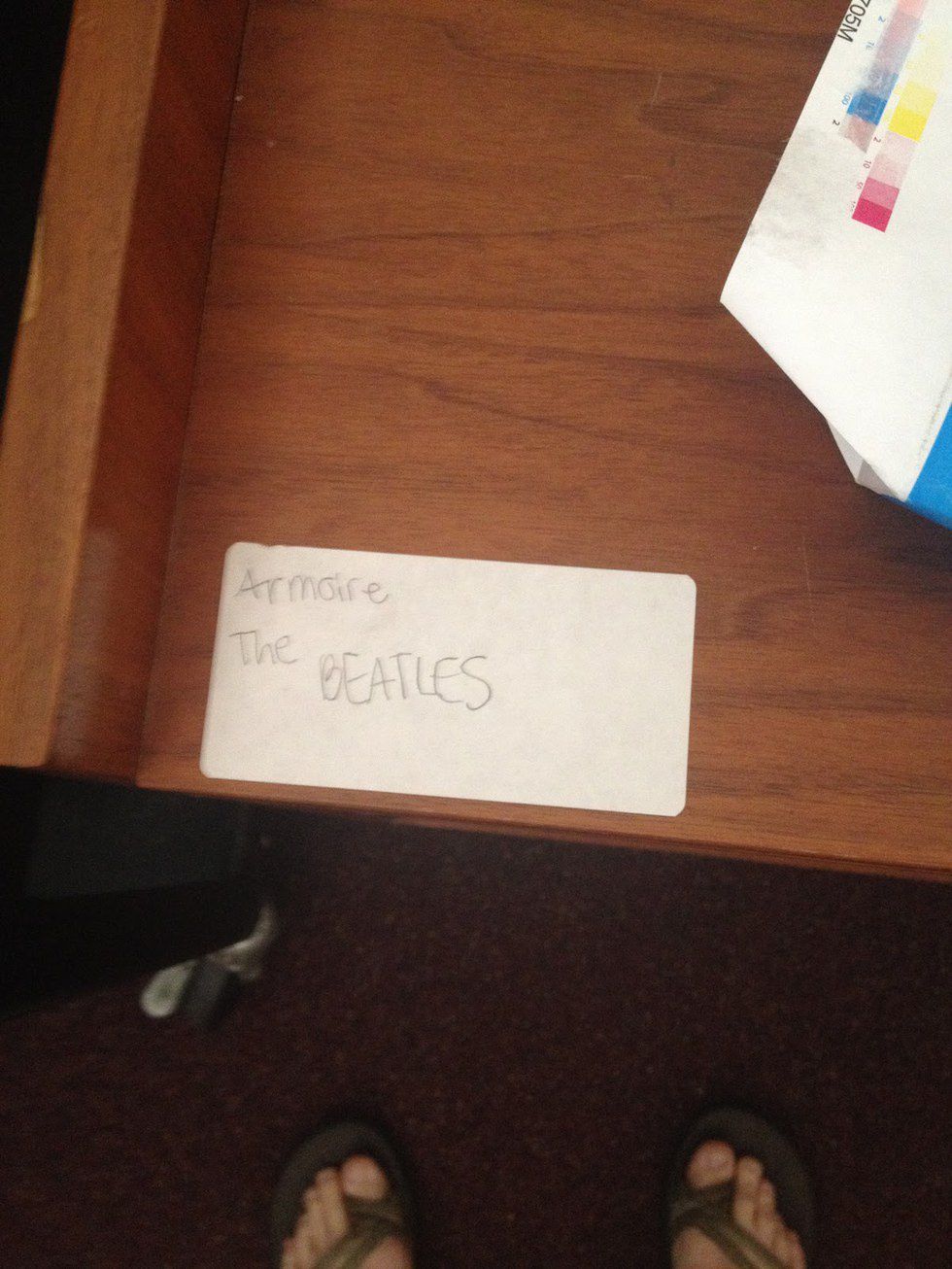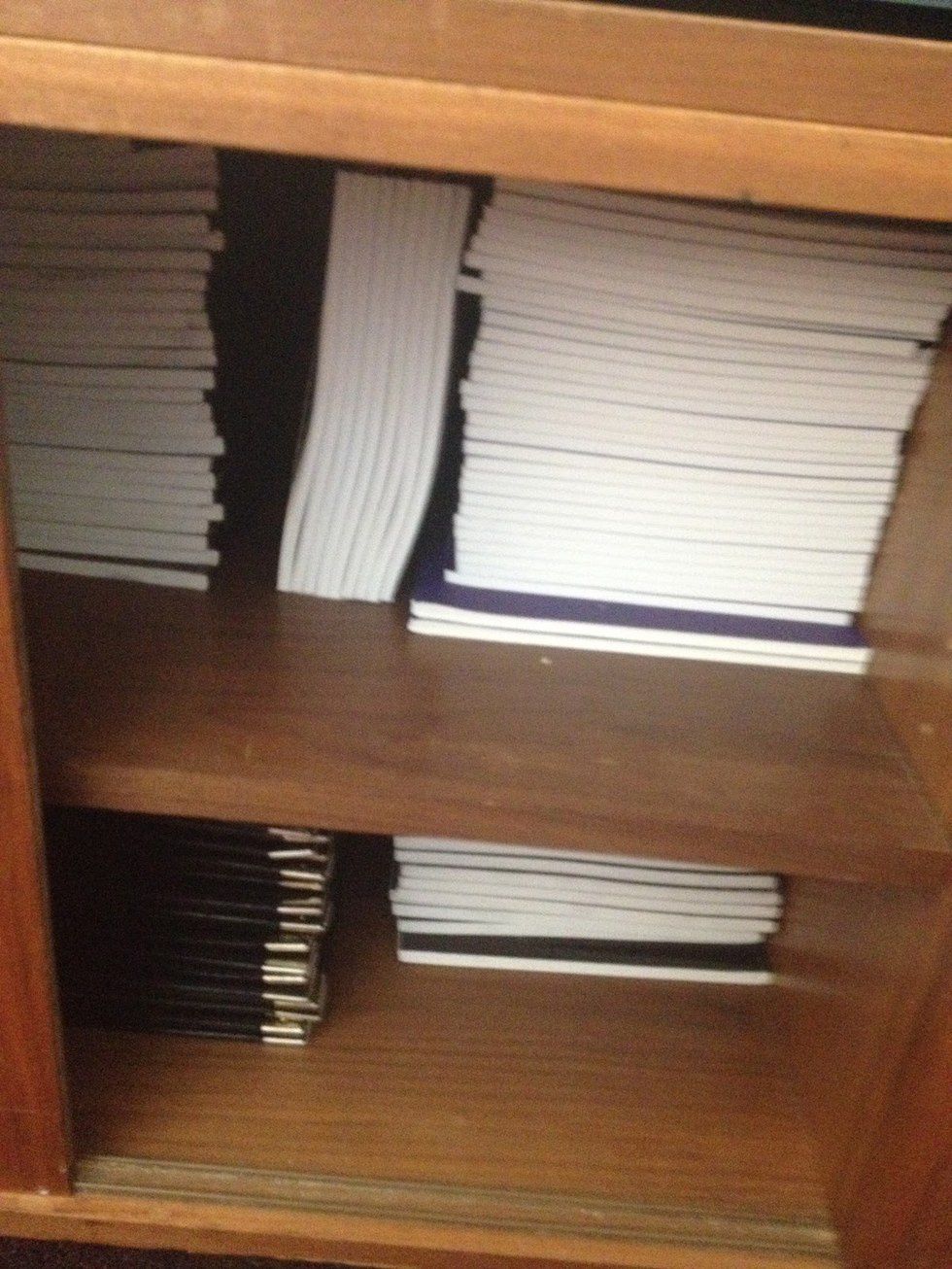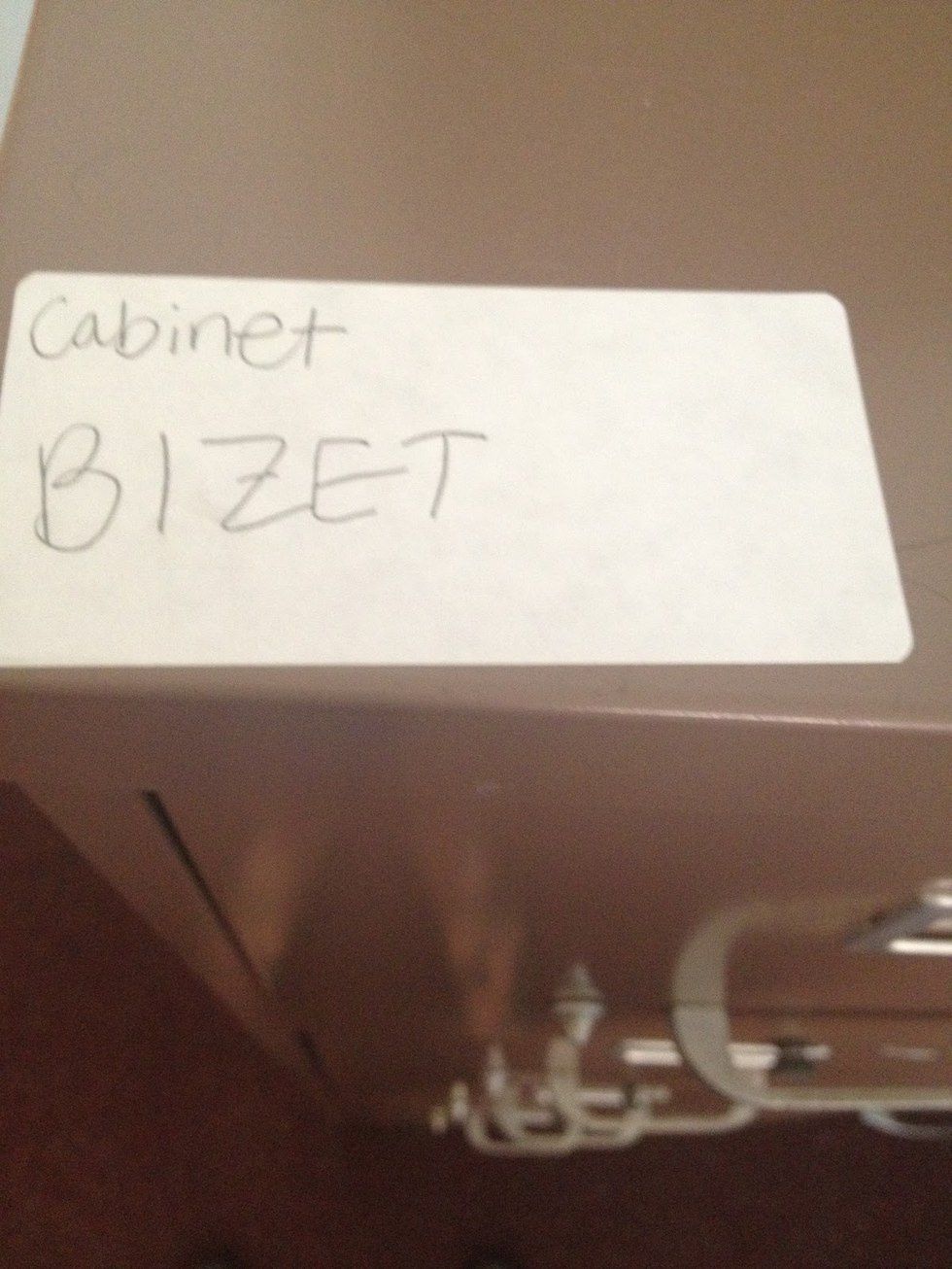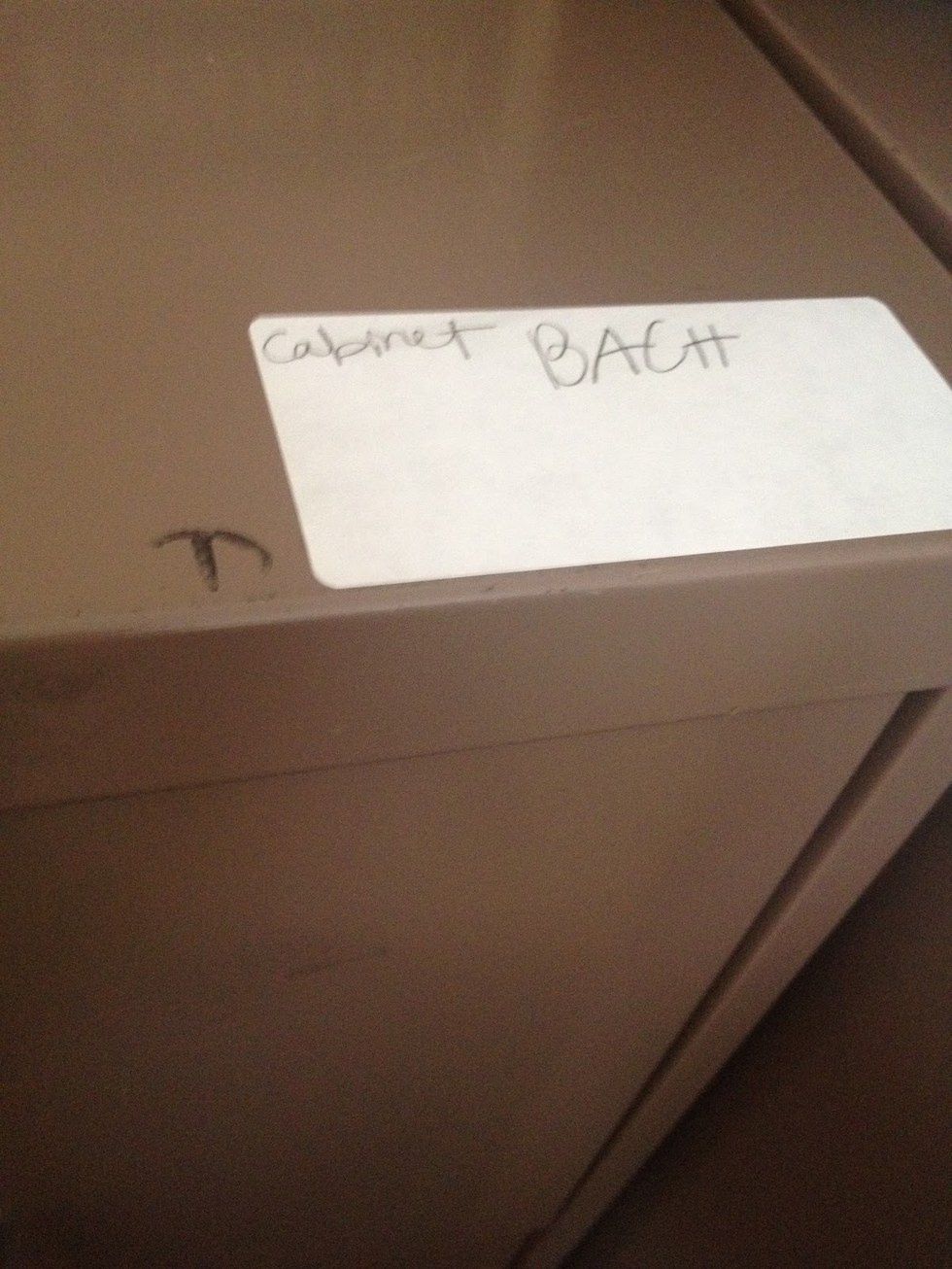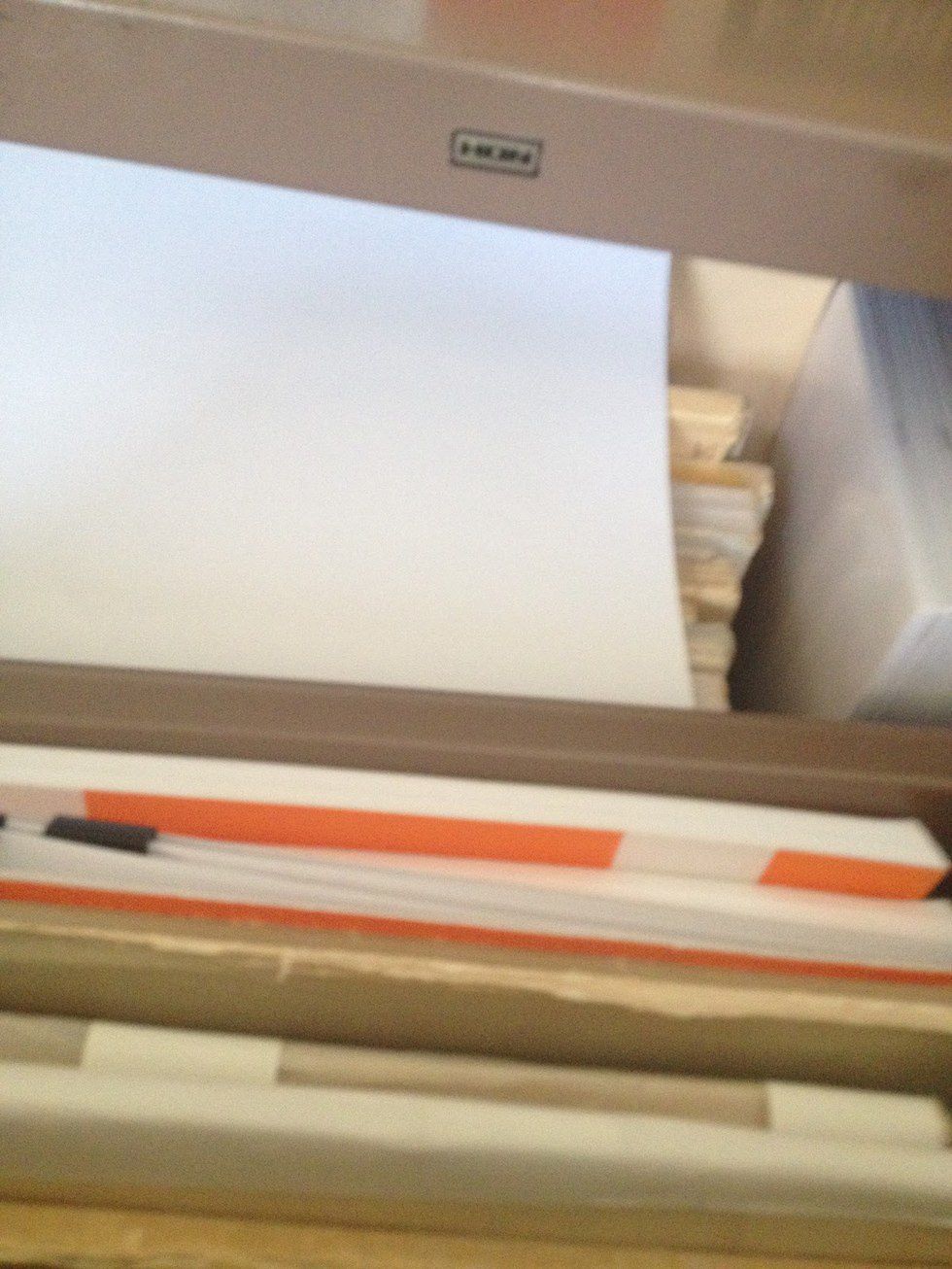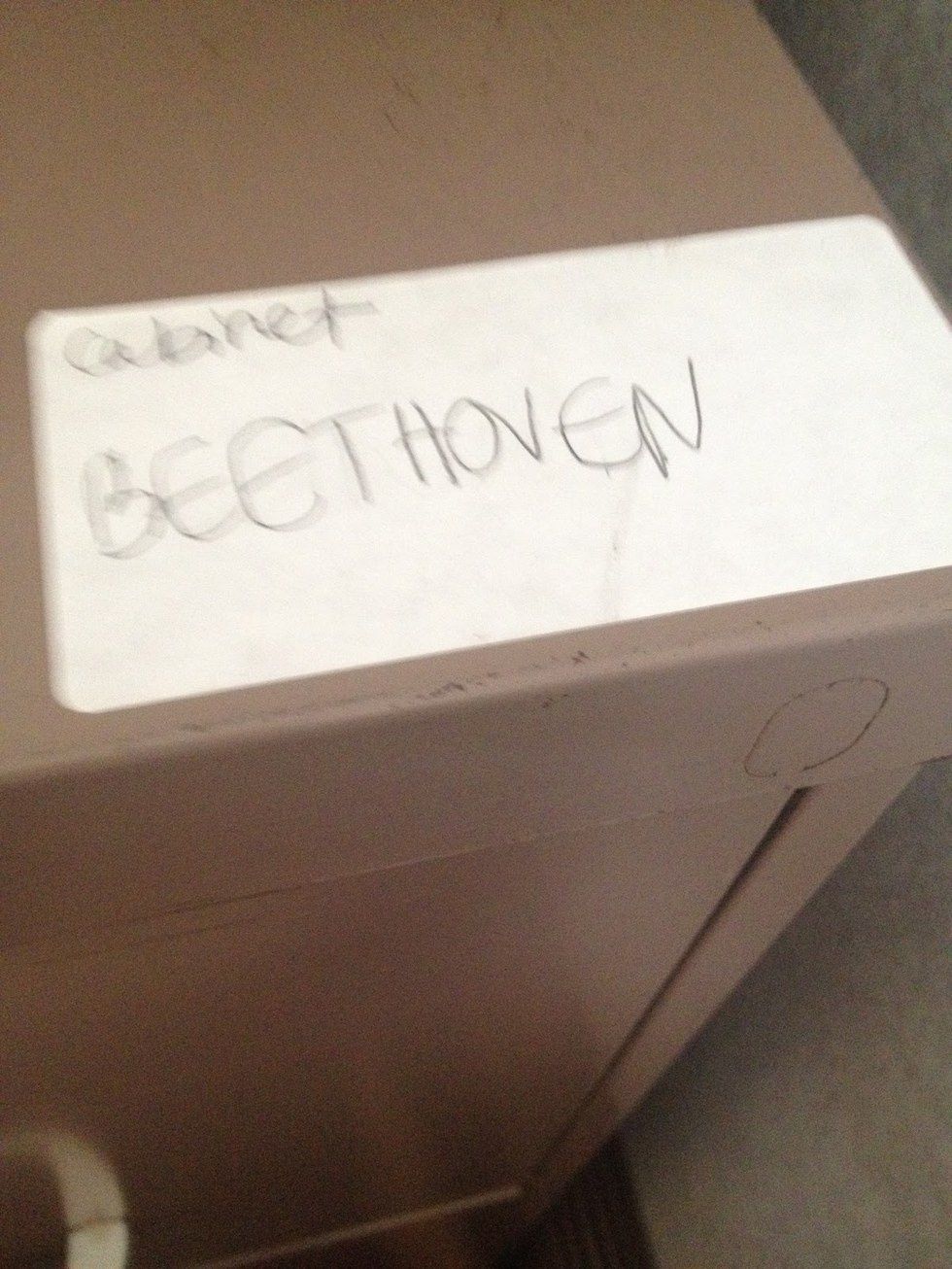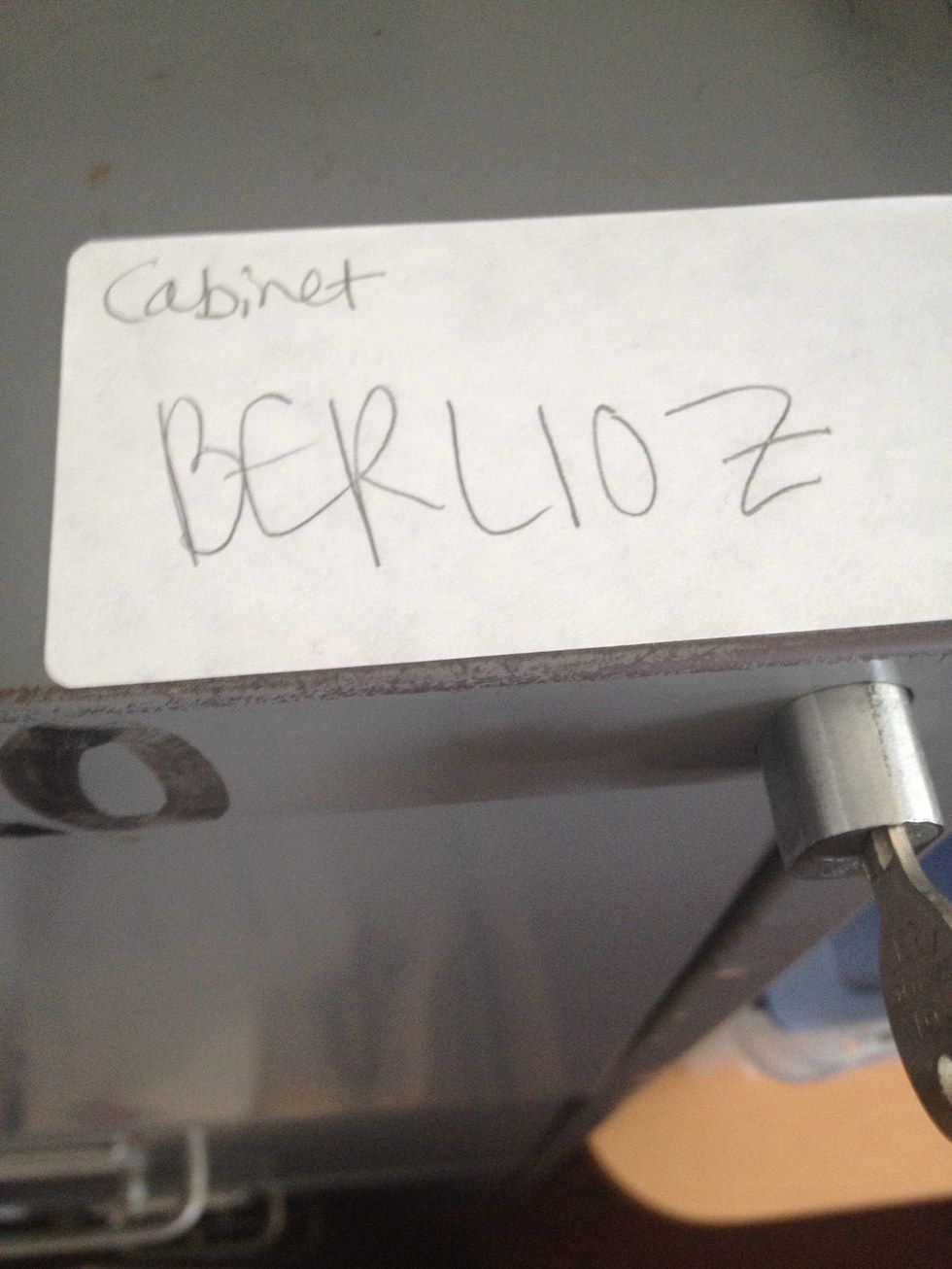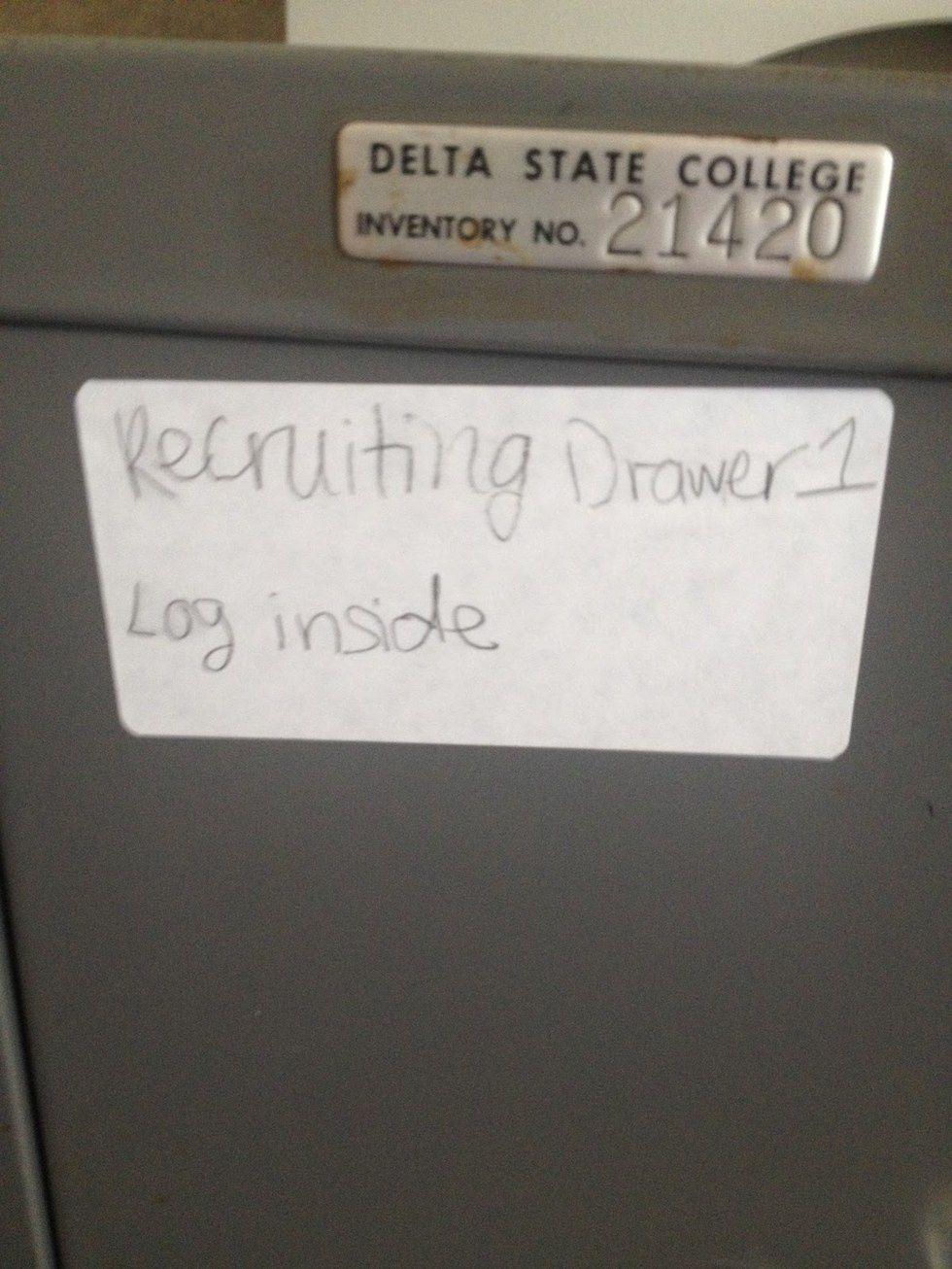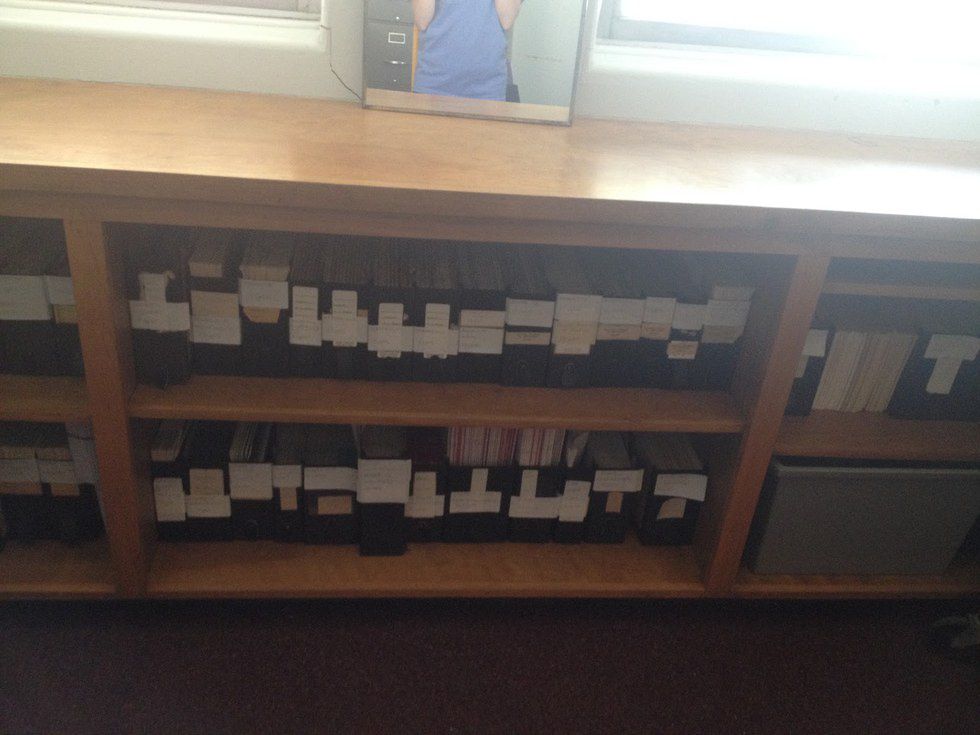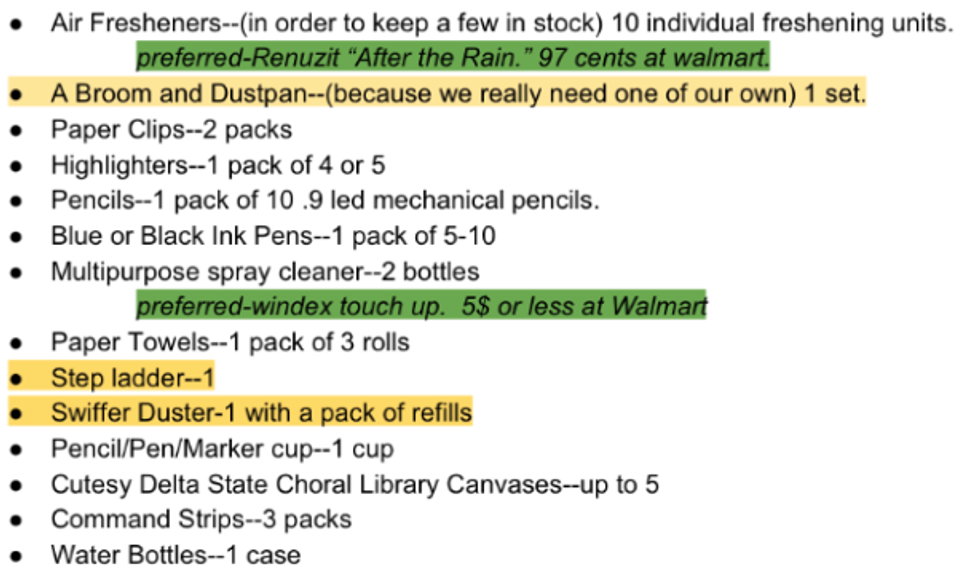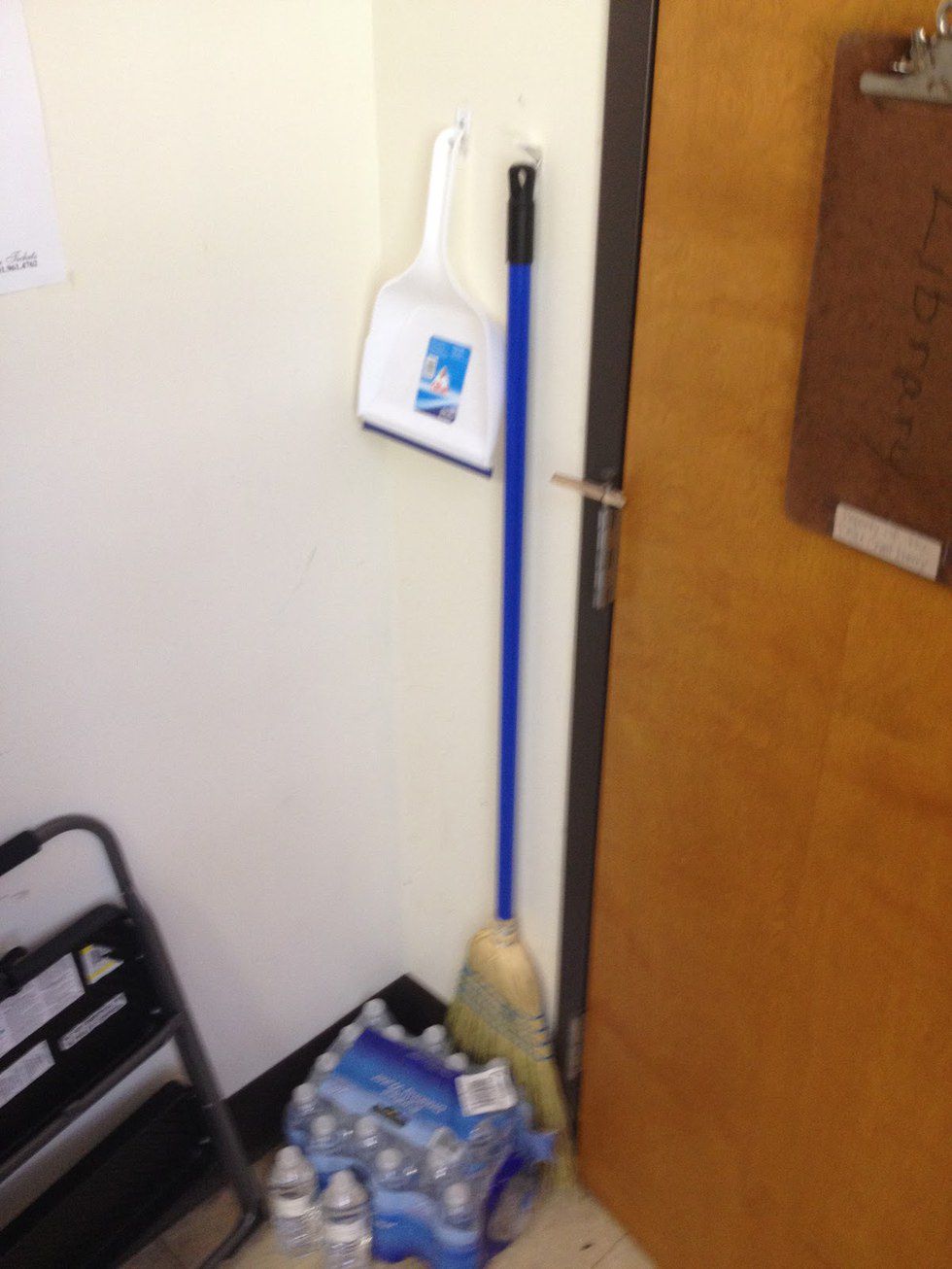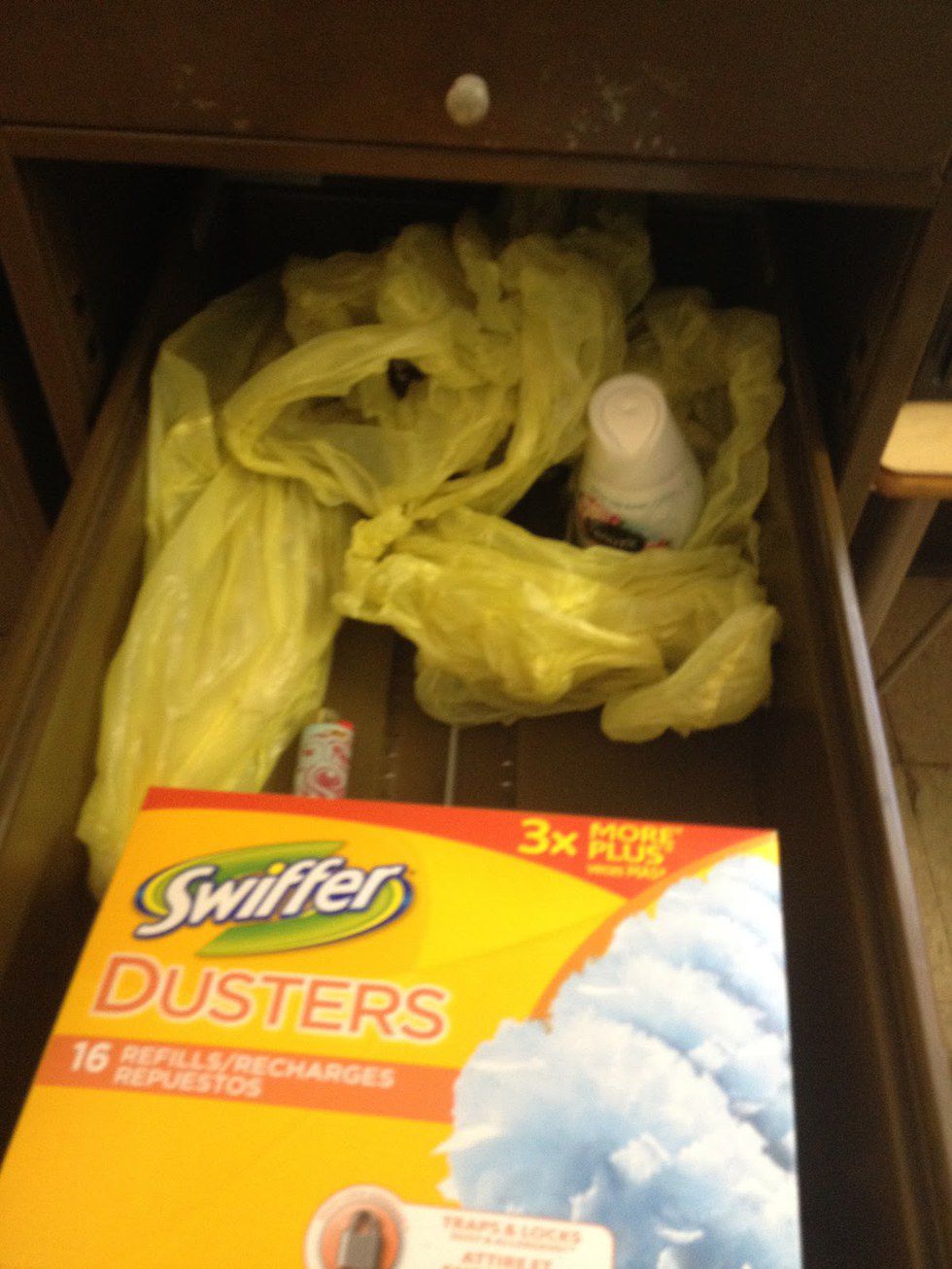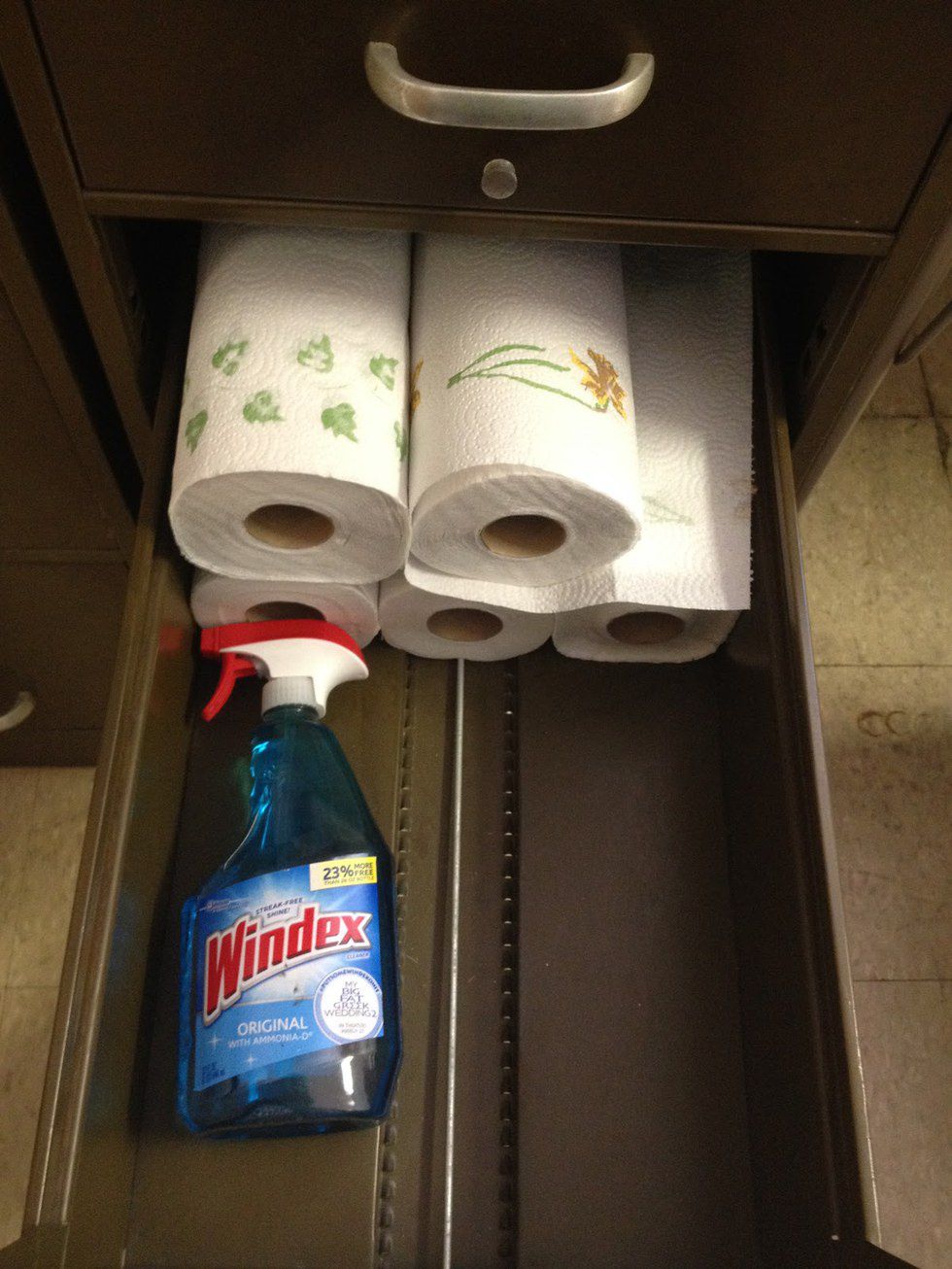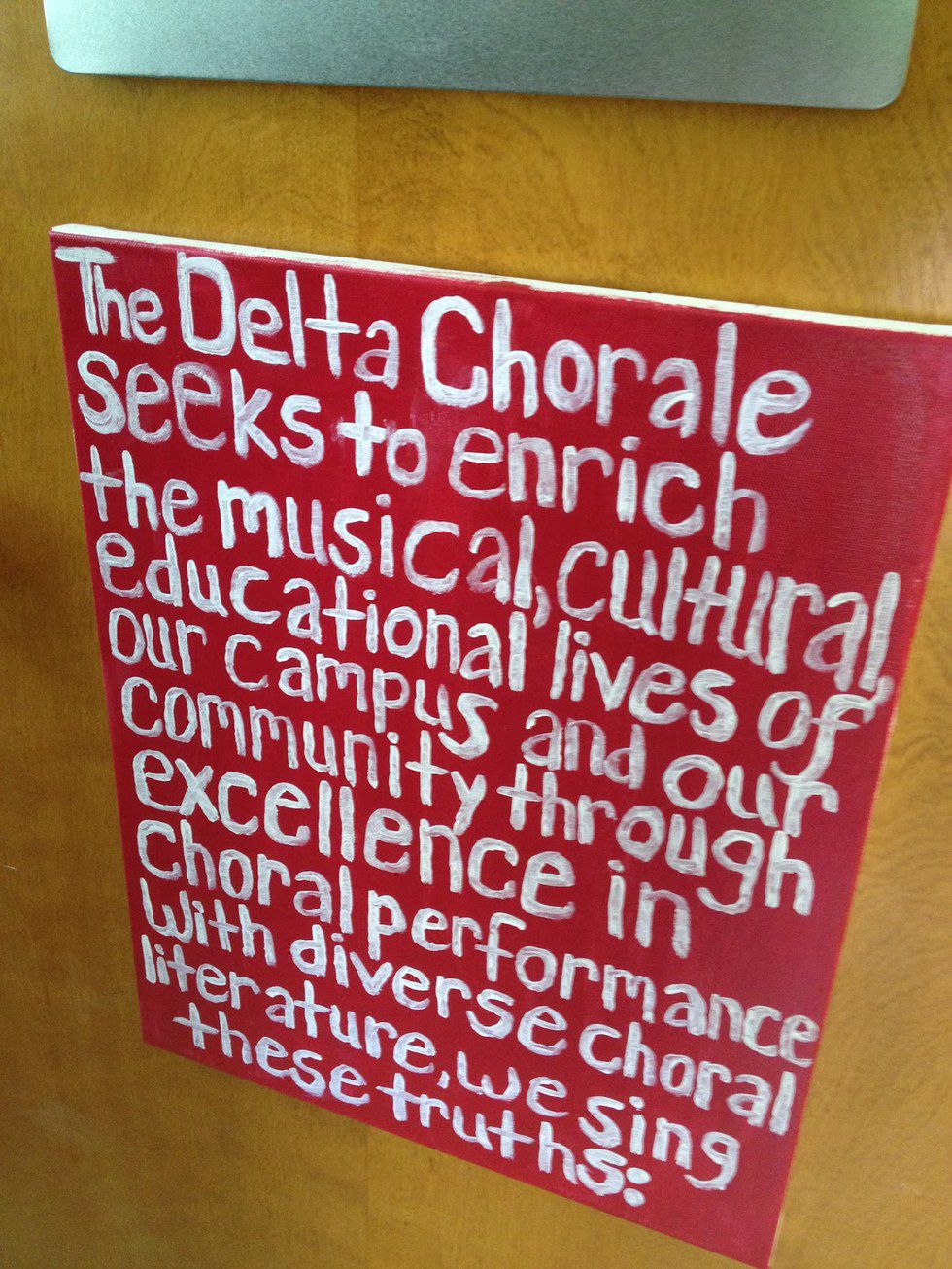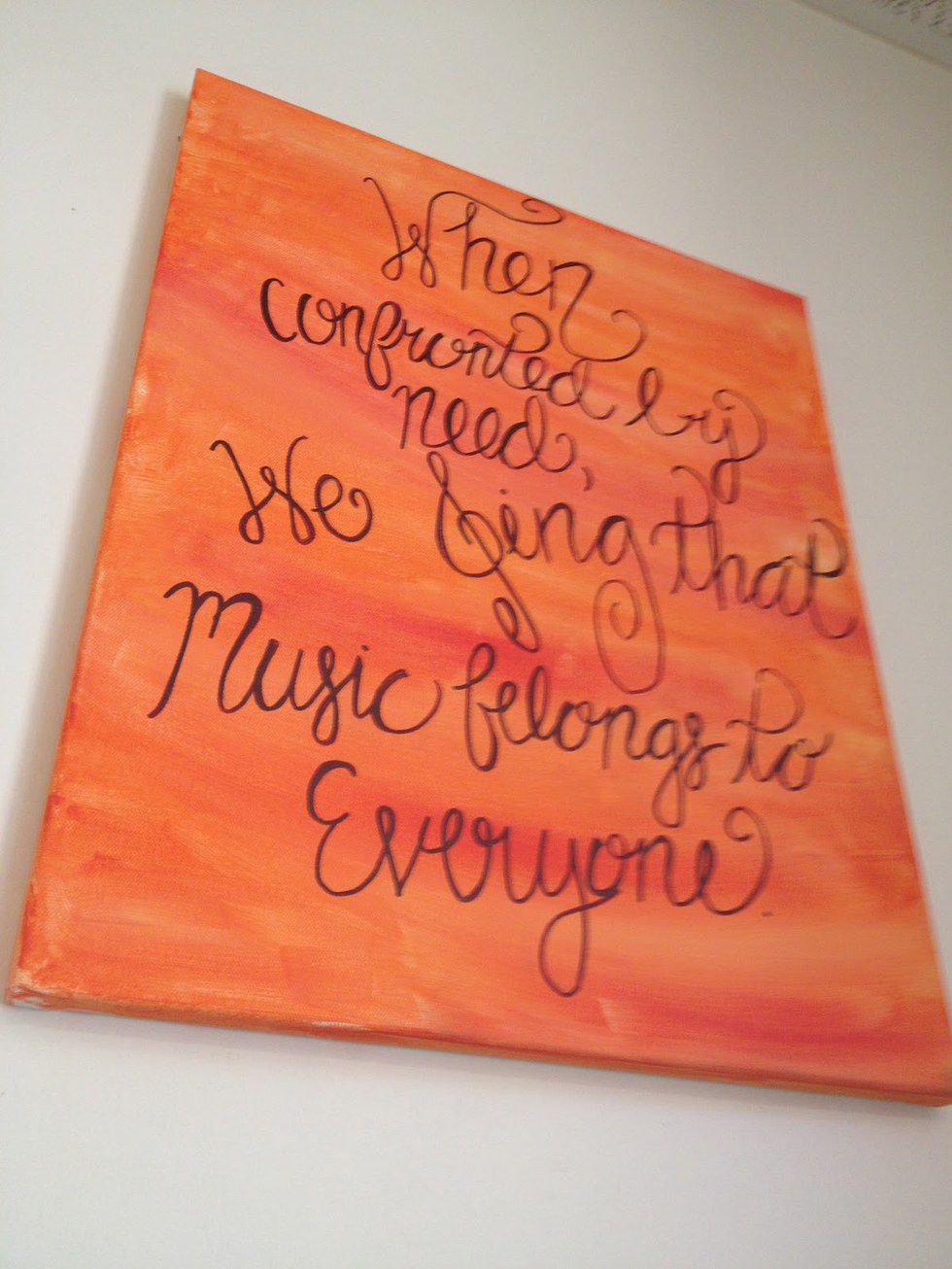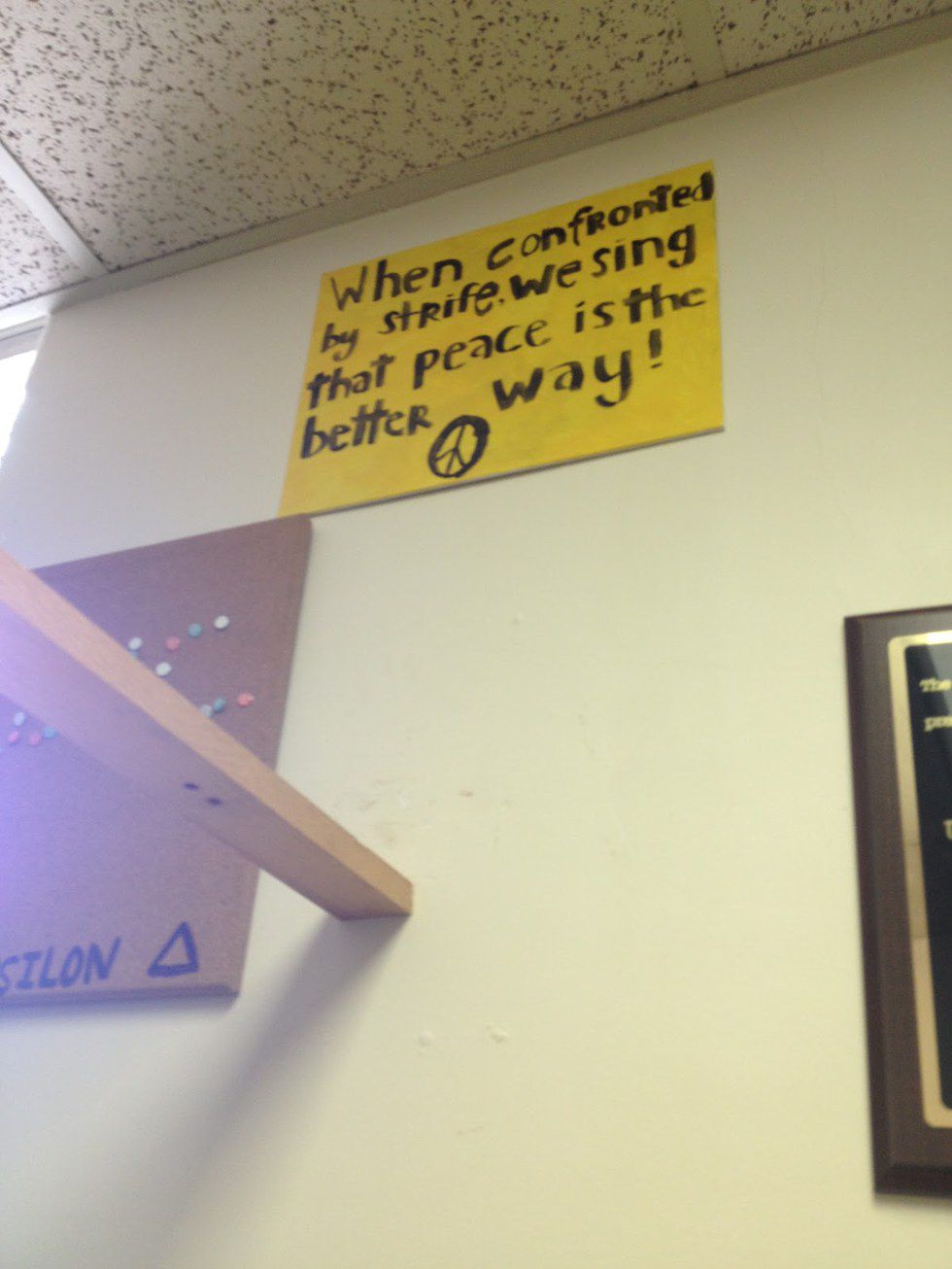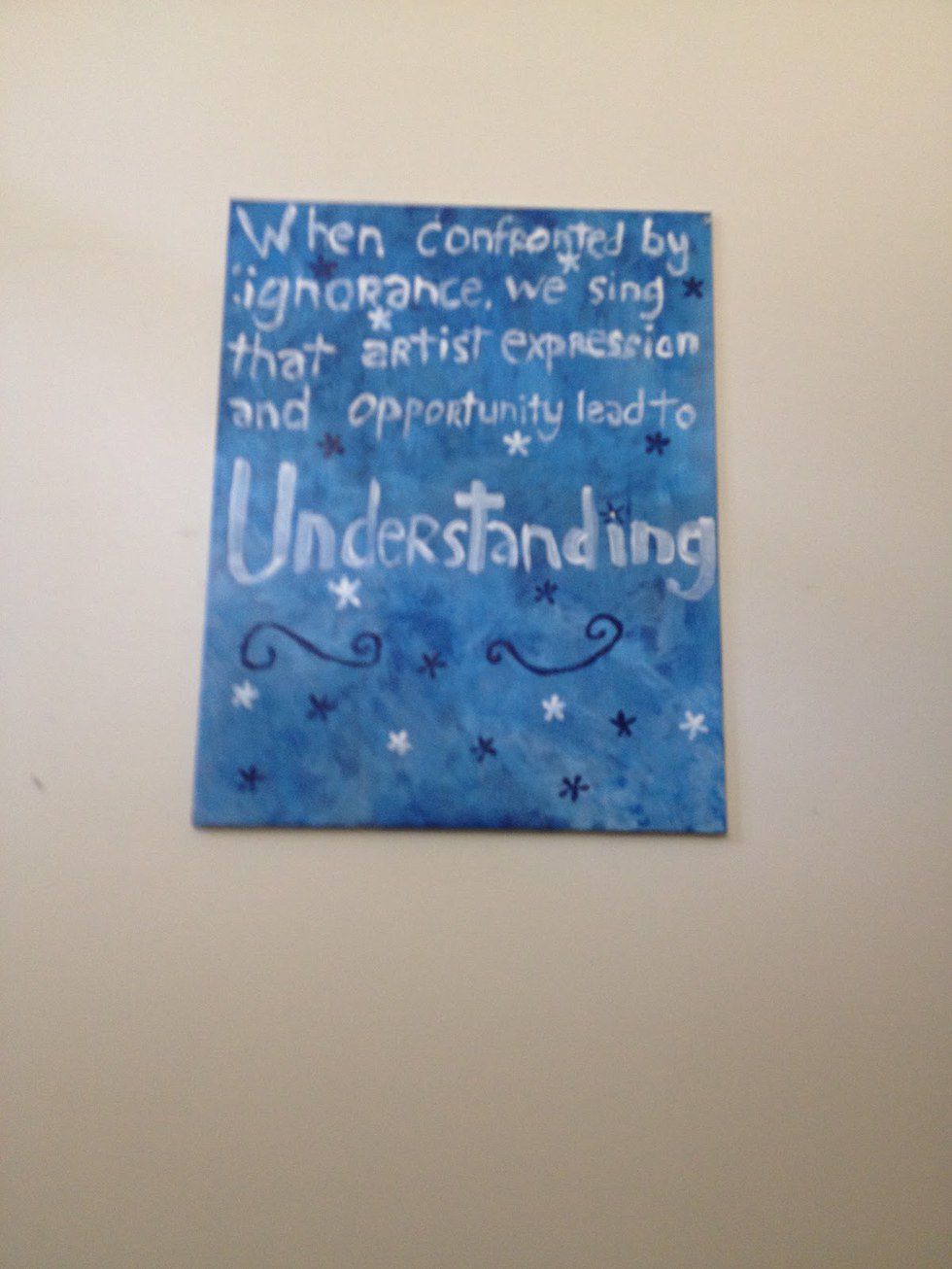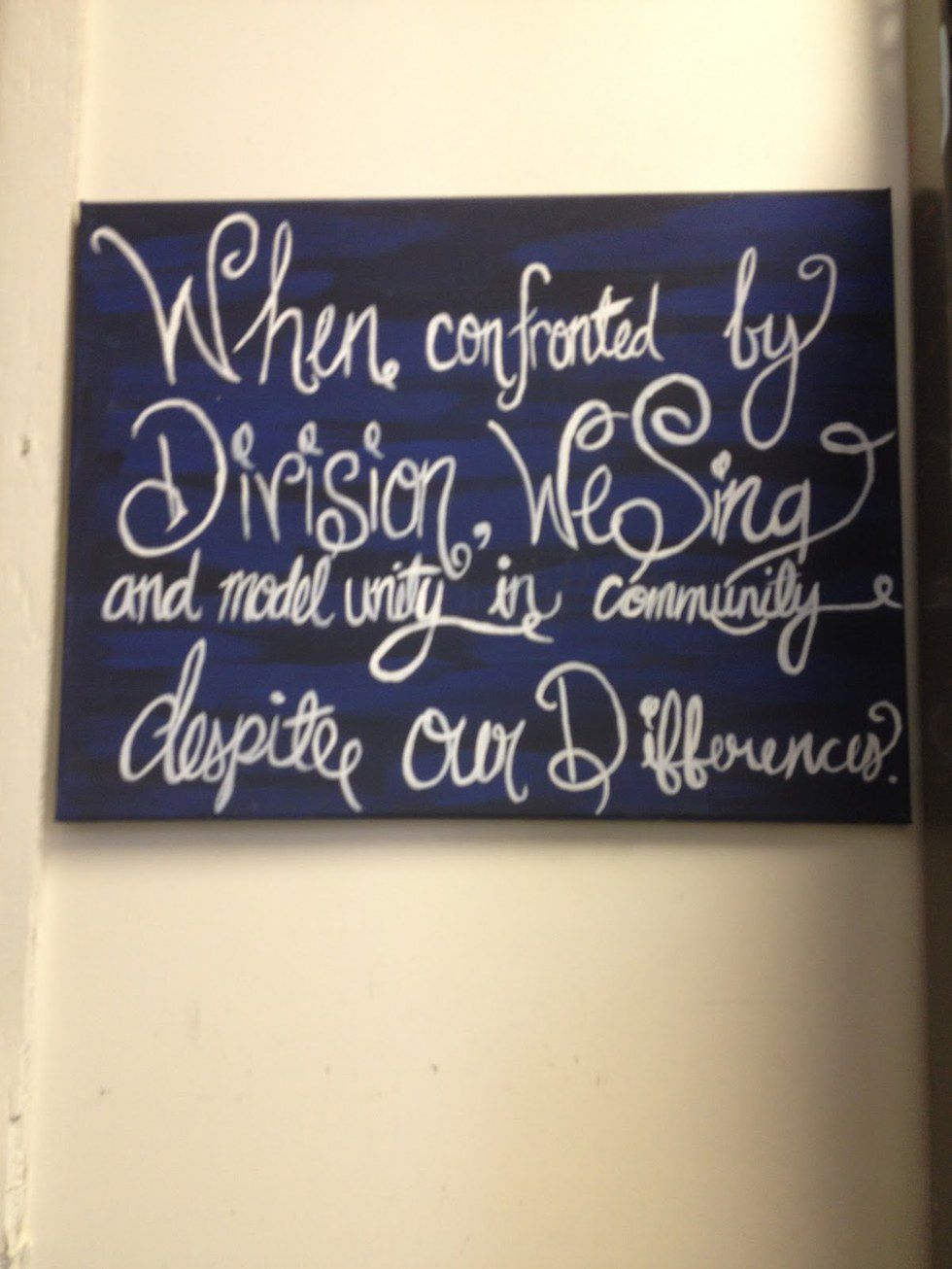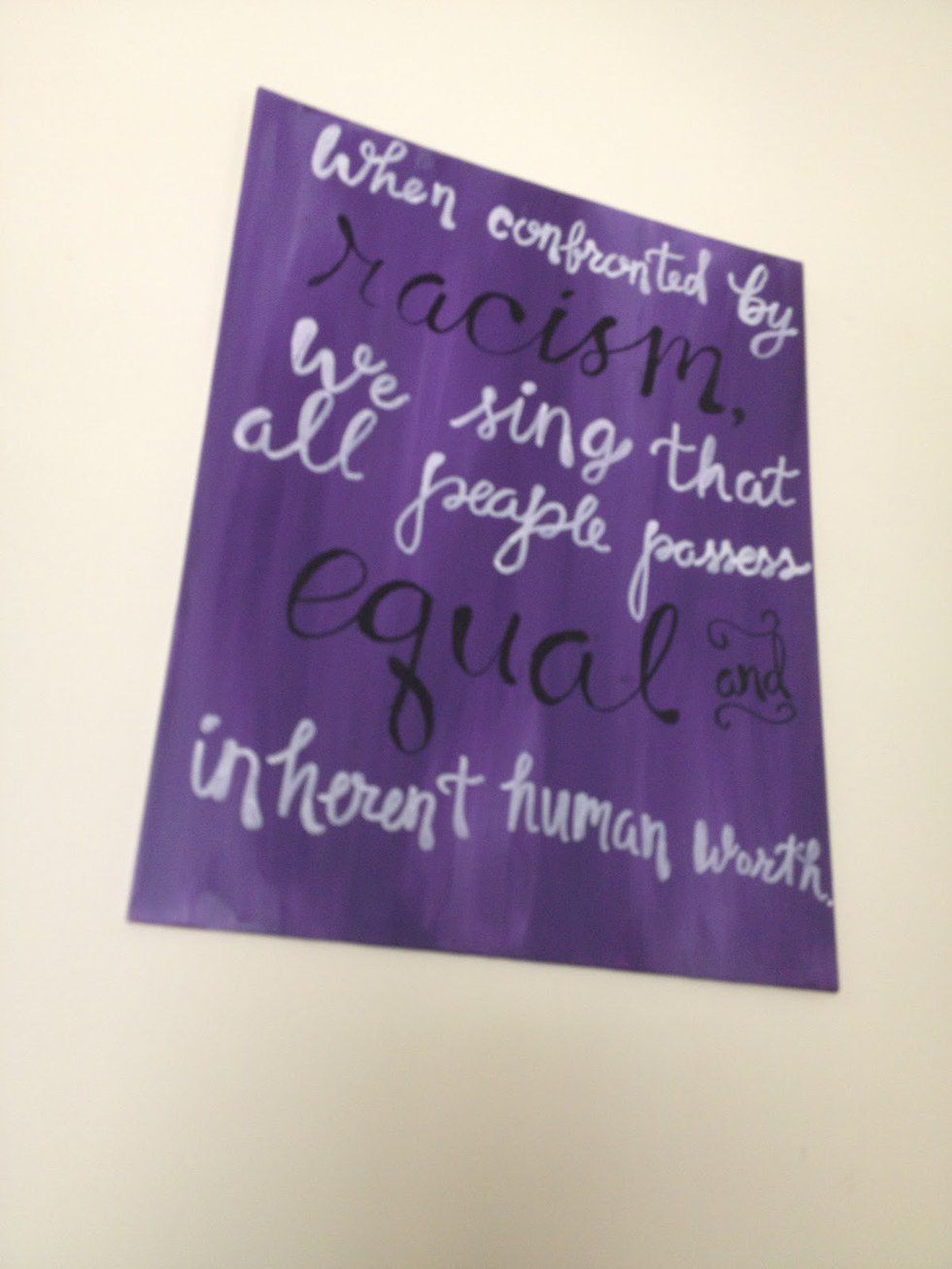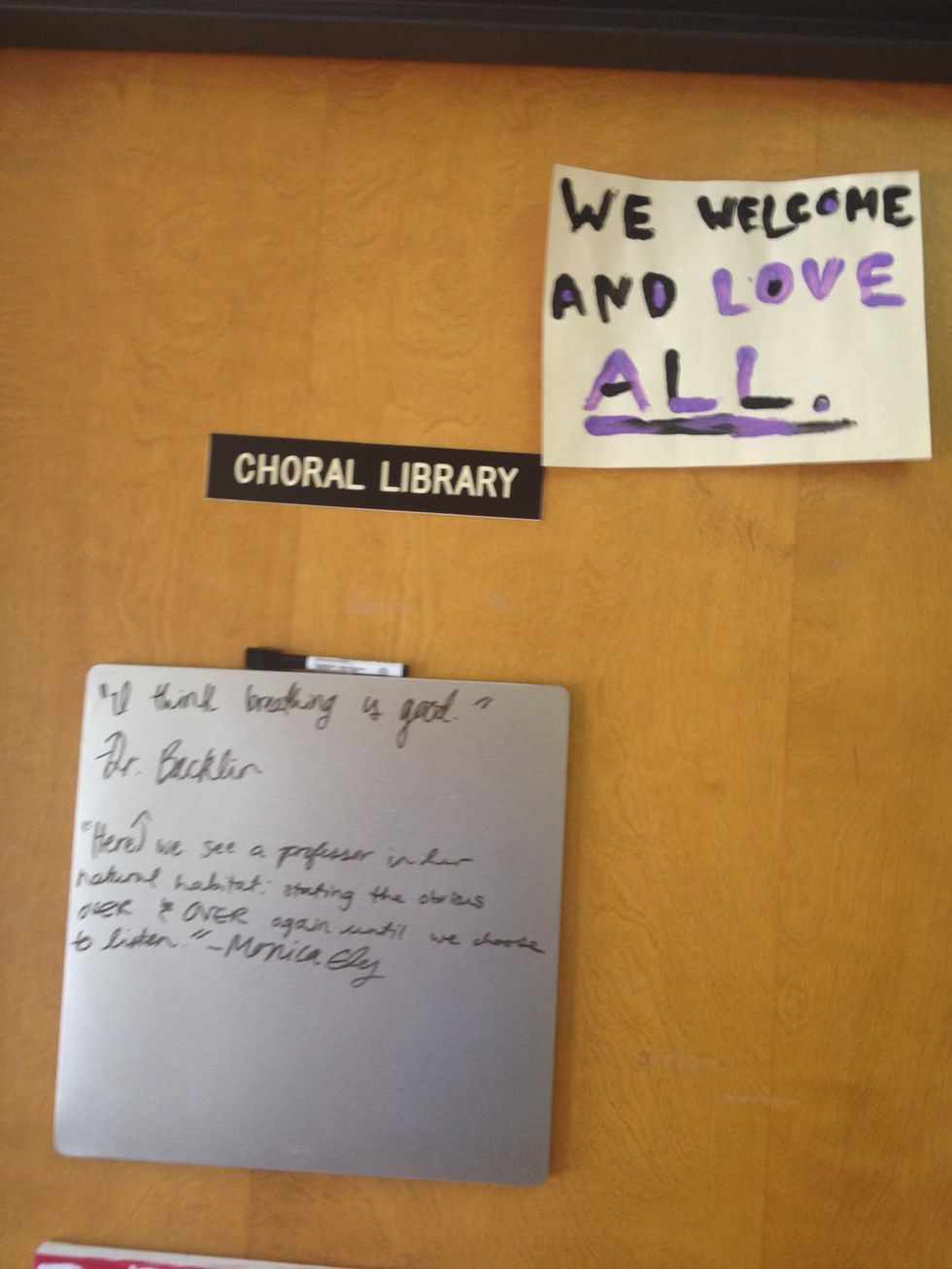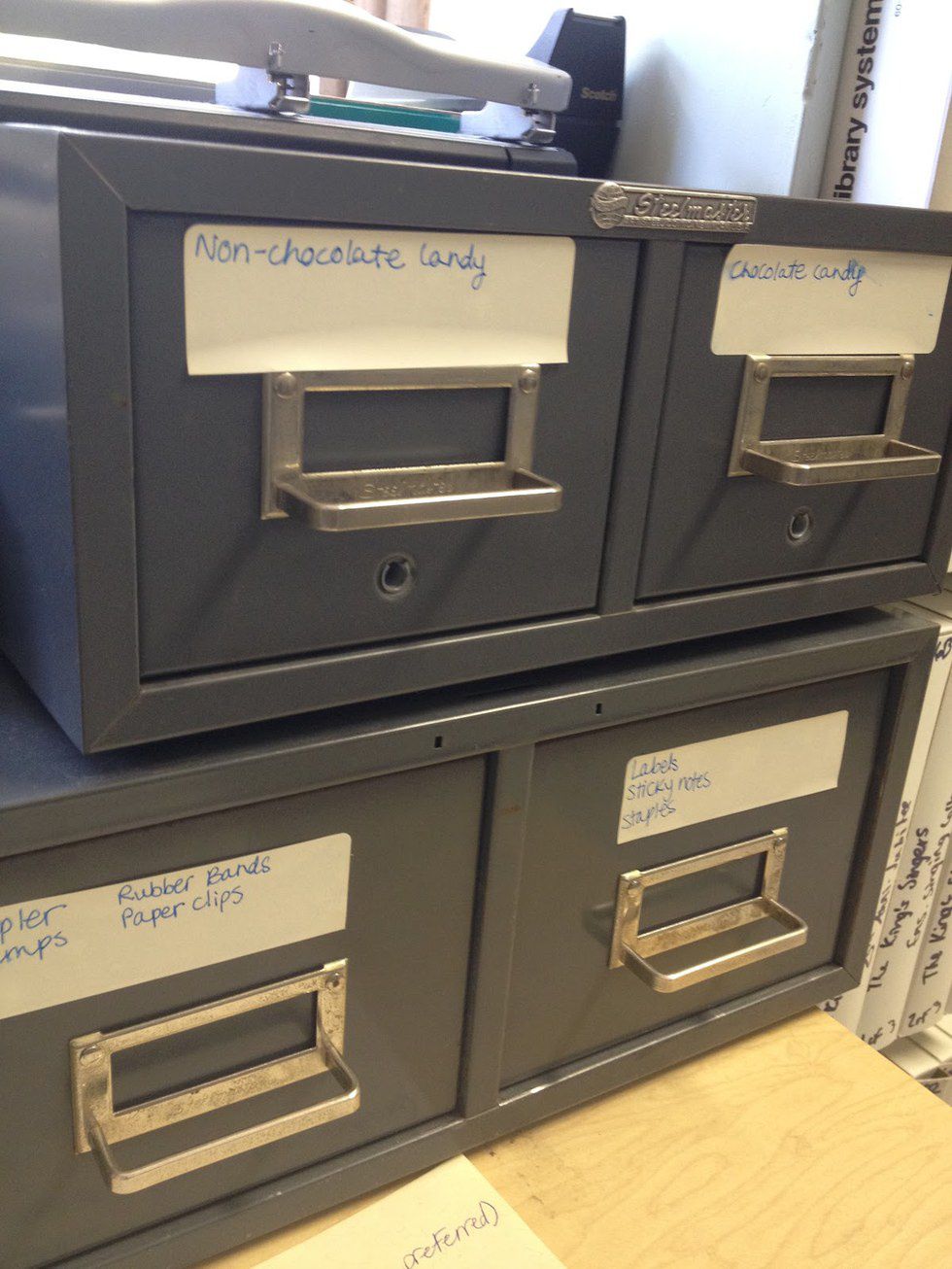Oh no! It’s your first year at your new job as a choir director, and you have no idea what to sing because you have no idea what this new library of music holds! The whole room is a sloppy mess. Mildew in the corner, shelves scattered everywhere, music stacked in boxes that also hold T-shirts and polos from choirs of eons ago. It reeks of musty old books (like, not the good nerdy kind), and you hold your breath, pick a piece off the shelf nearest you, and pray that it’s arranged for the group you’re hoping for. You get out of there as fast as you can and burn a candle in your office until the scent is out of your nose.
Enter me, MJ Britton, choral librarian.
First, I’ll explain the whole process of actual organization, complete with pictures of the finished product. Then I’ll address the issue of having someone to actually do it all. I didn’t do it all single-handedly, but with help, I pulled it off during one of the busiest, most stressful semesters of my life. This article is to explain how you can do that, too.
This is how I empower people to search for things themselves instead of me enabling them by finding it for them. They walk into a room like this: (x10) 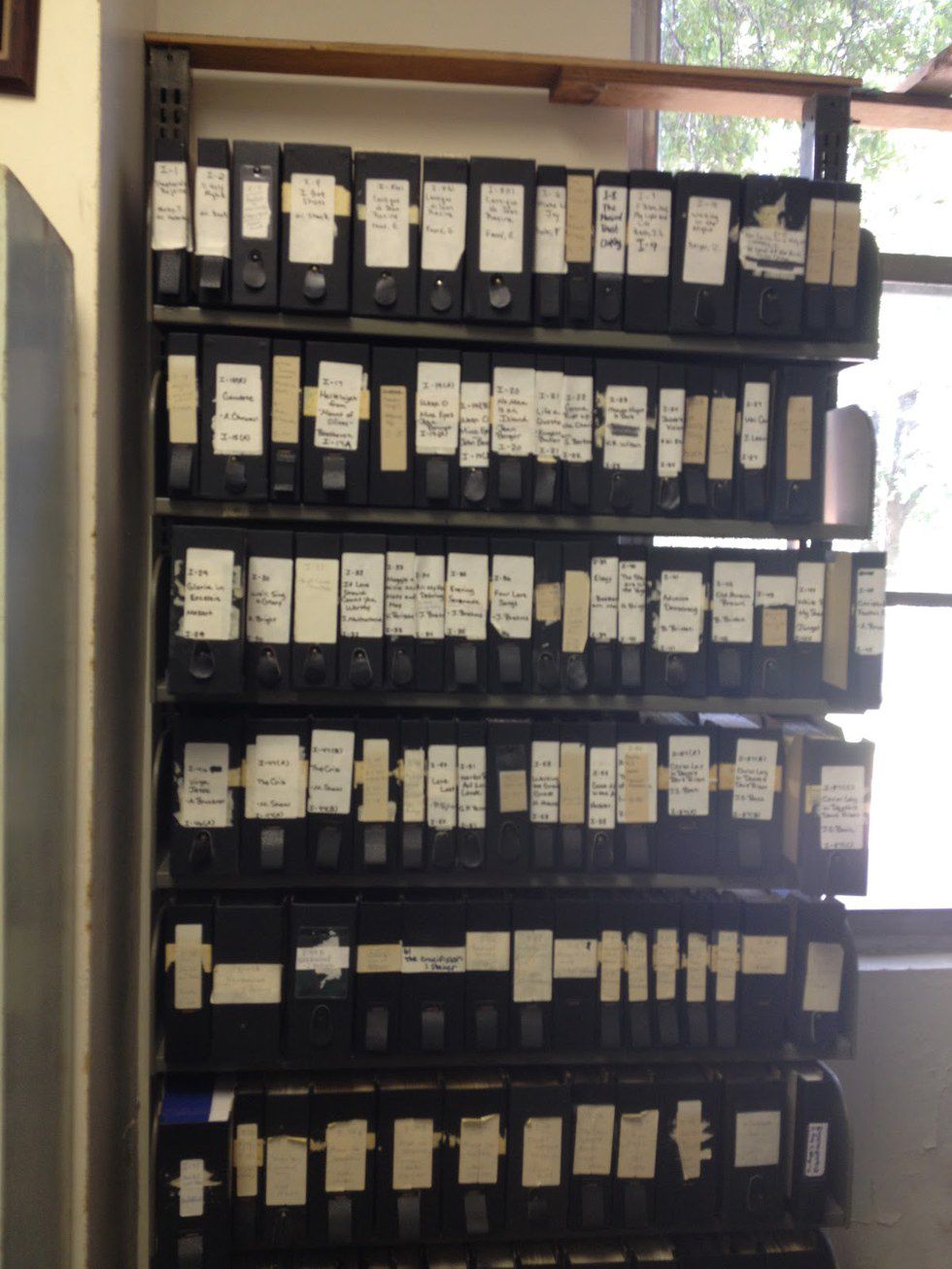
Where do you start? An excel-sheet catalog. If you’re like me and you’re too cheap to get Microsoft Office’s package deal, go to drive.google.com and log in with a gmail account. It has Google Sheets, which can save as an .xml file and be looked at and edited by anyone who has Microsoft Excel. When you want to find something in a spreadsheet, just hit ctrl and f, and it will find what you type in.
You don’t have to organize like I do, but you can use my system if it helps.
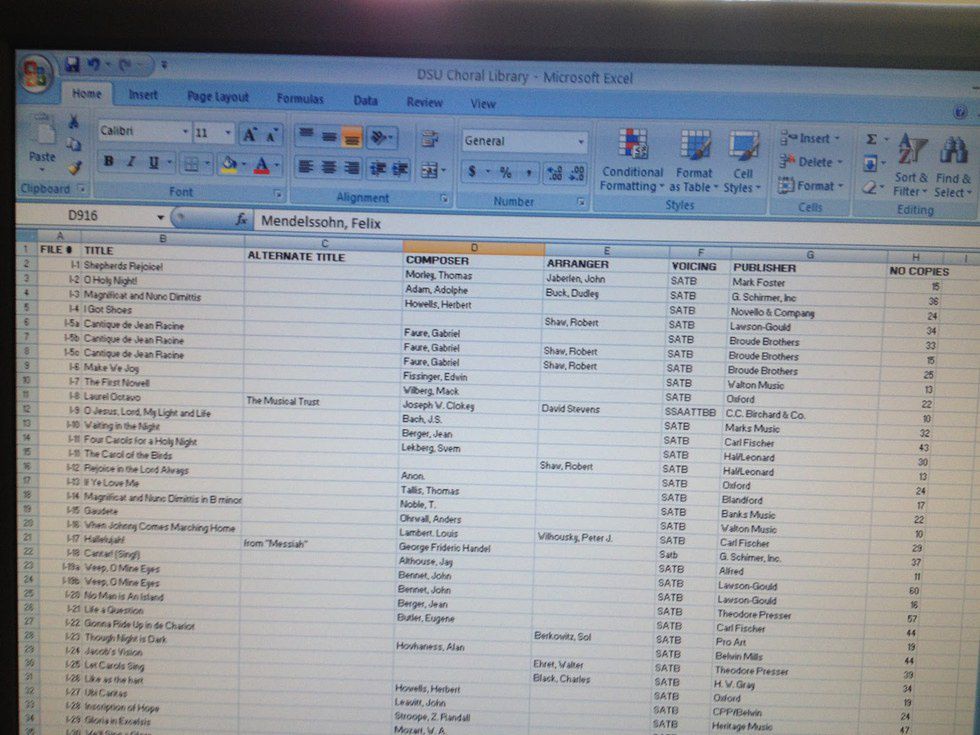
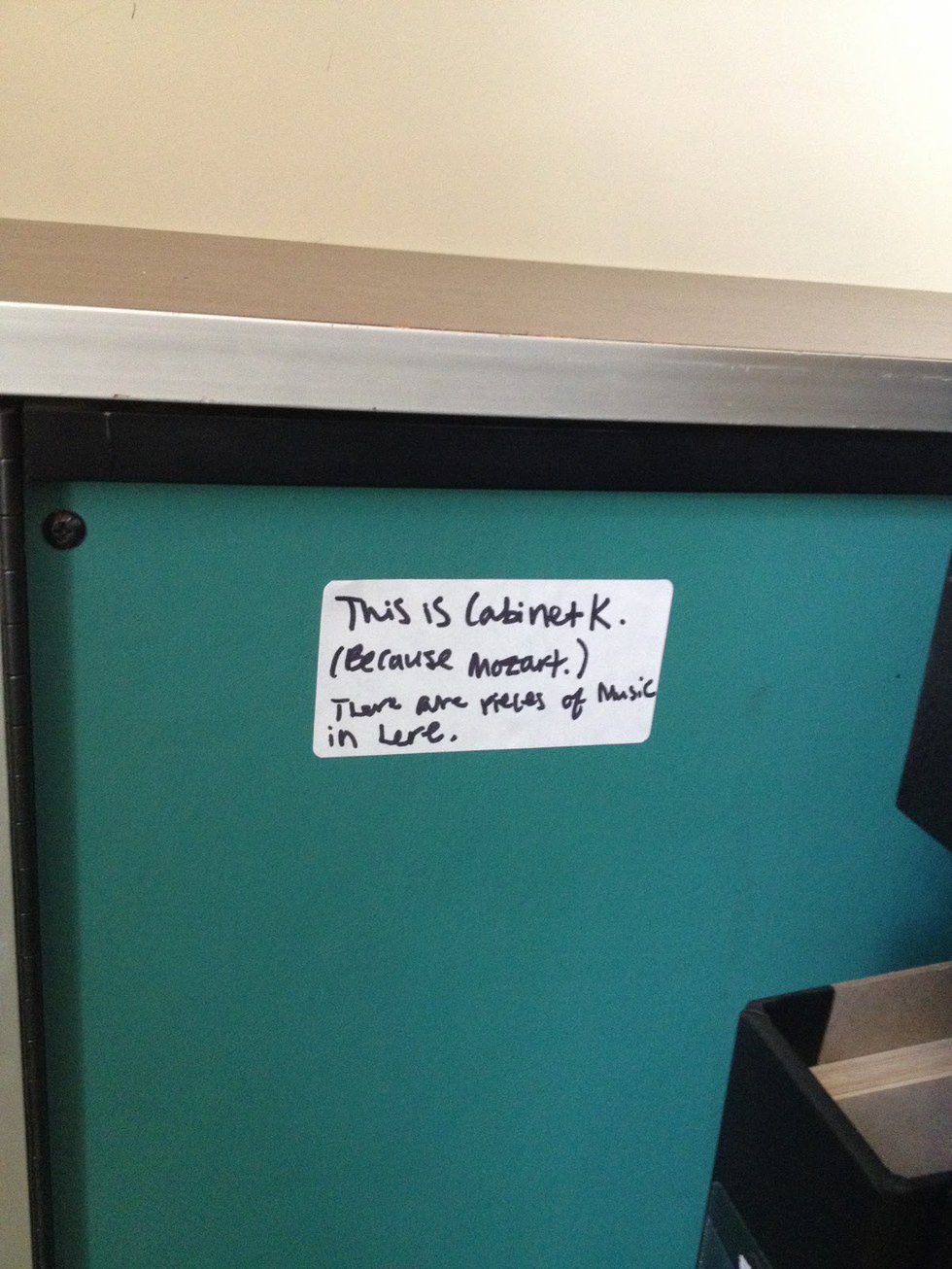
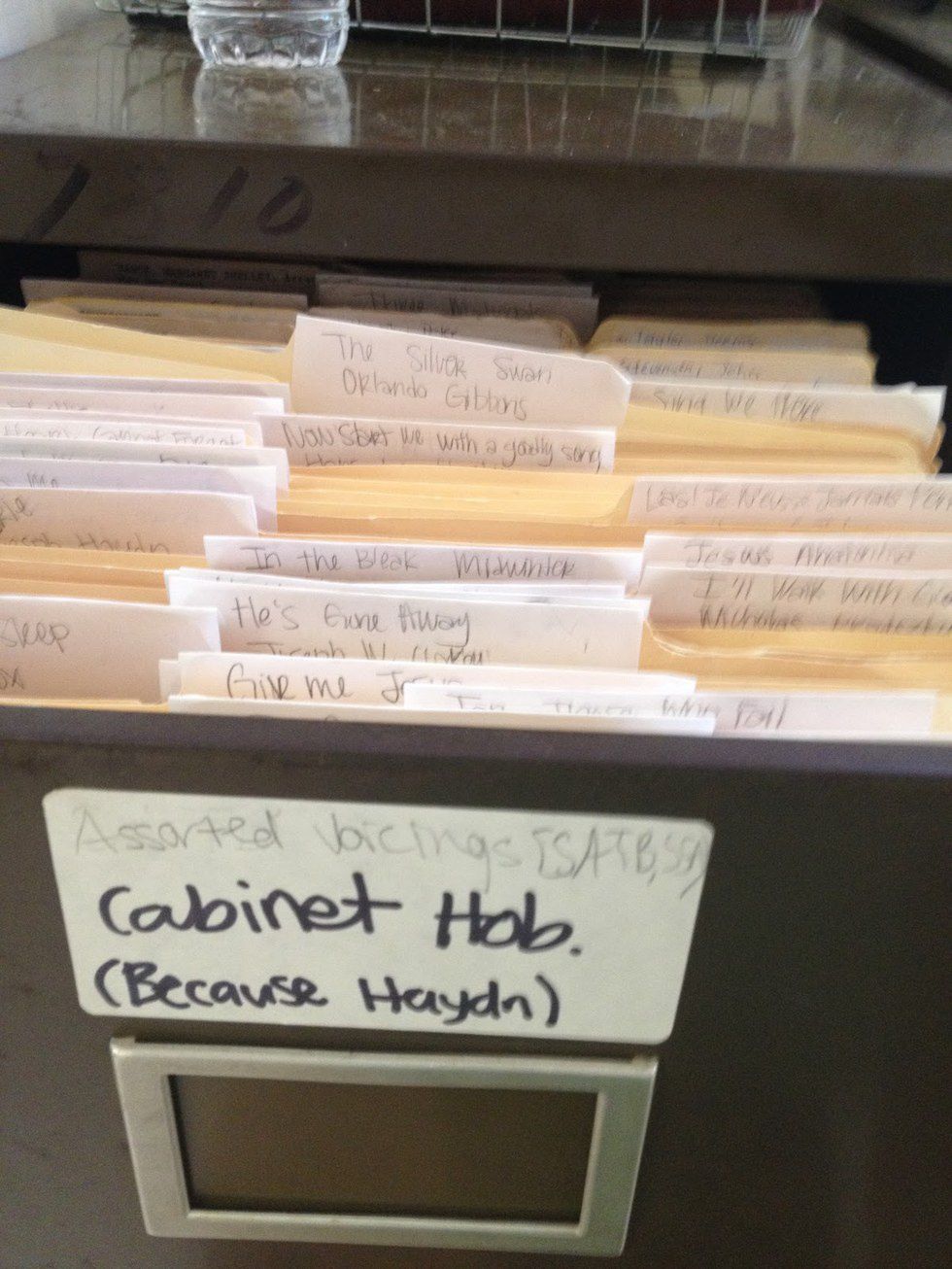
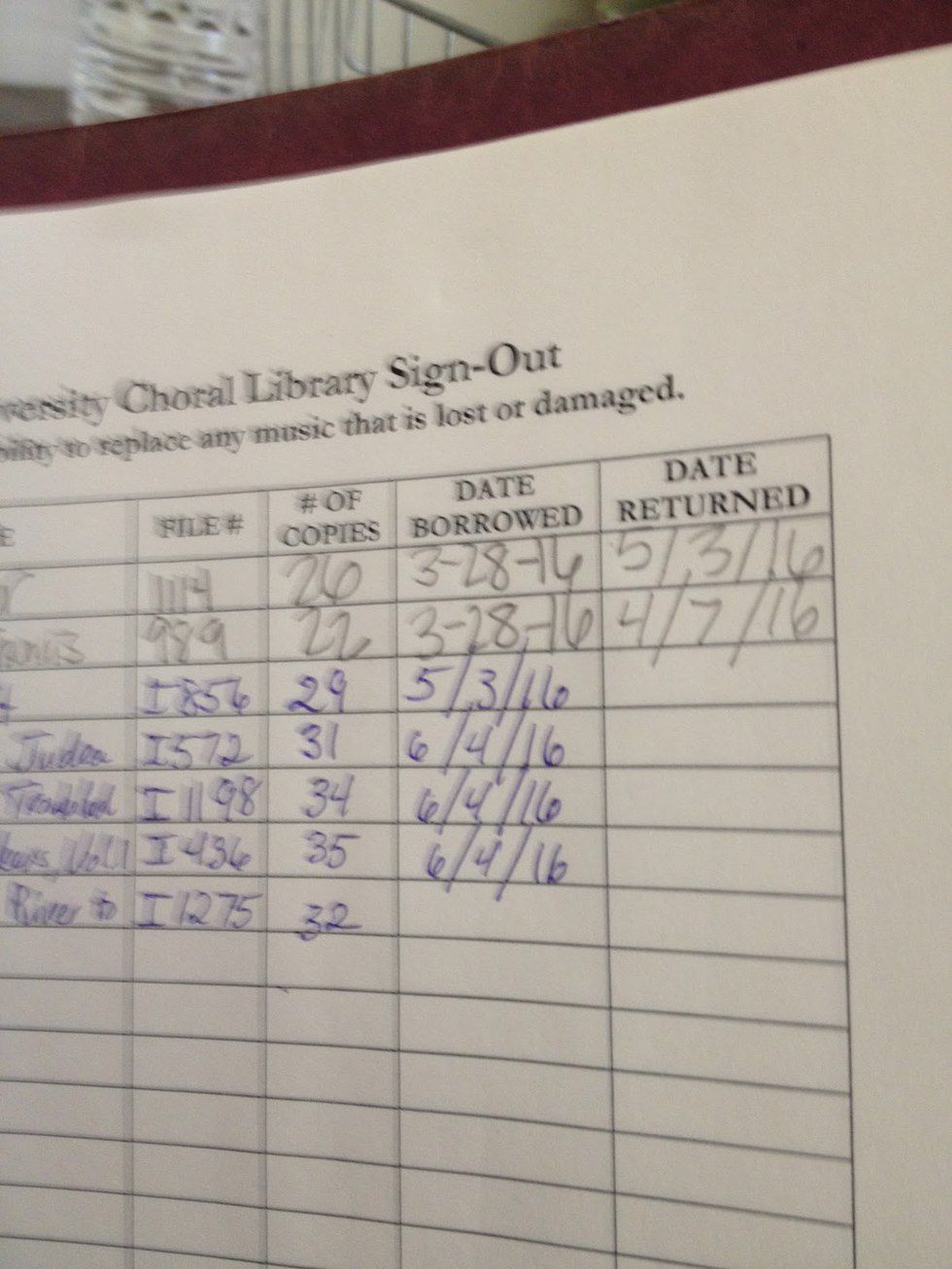
I will now move to the choral library workroom. 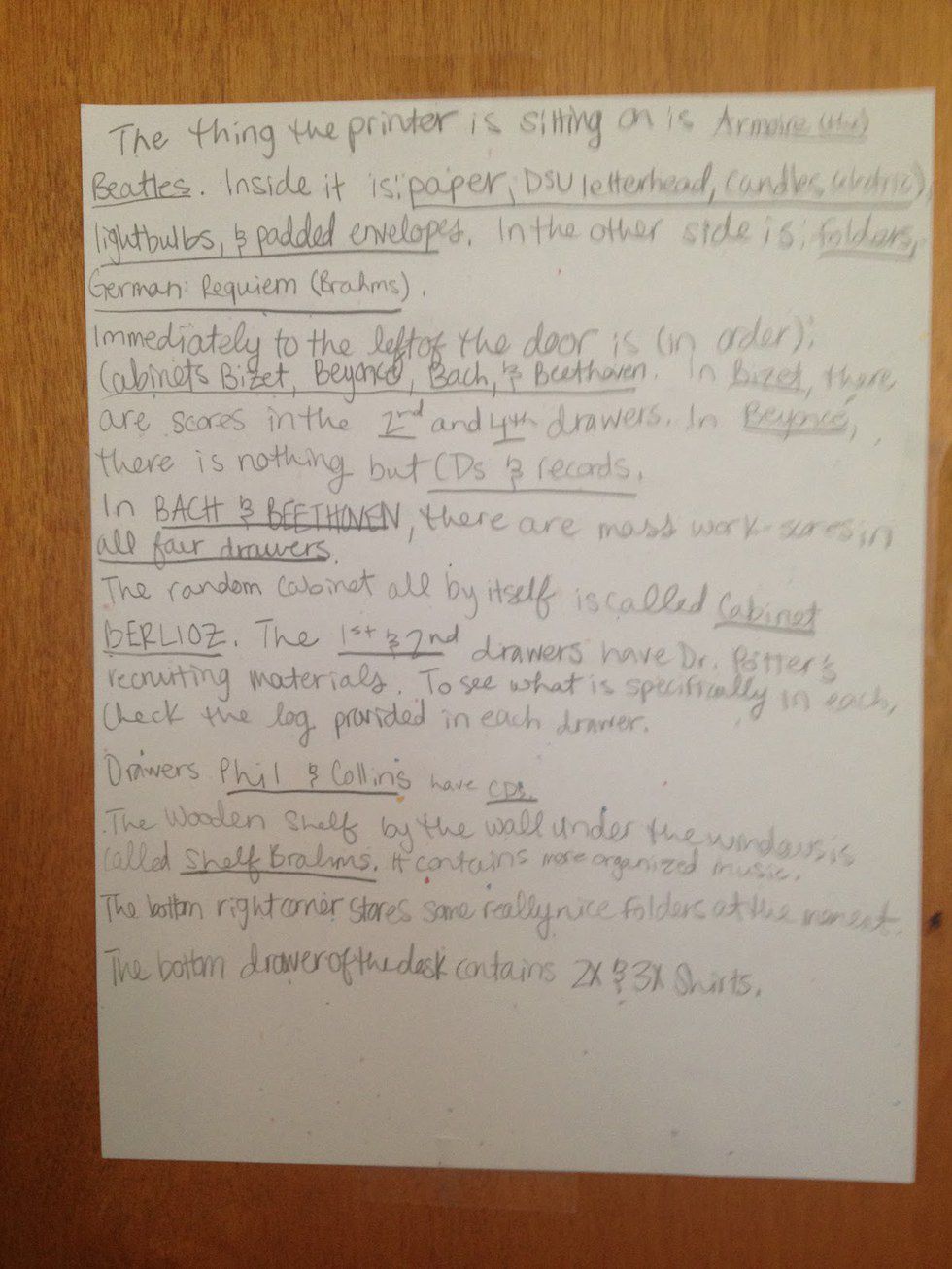
Since it’s mentioned first, I’ll begin with Armoire the Beatles. 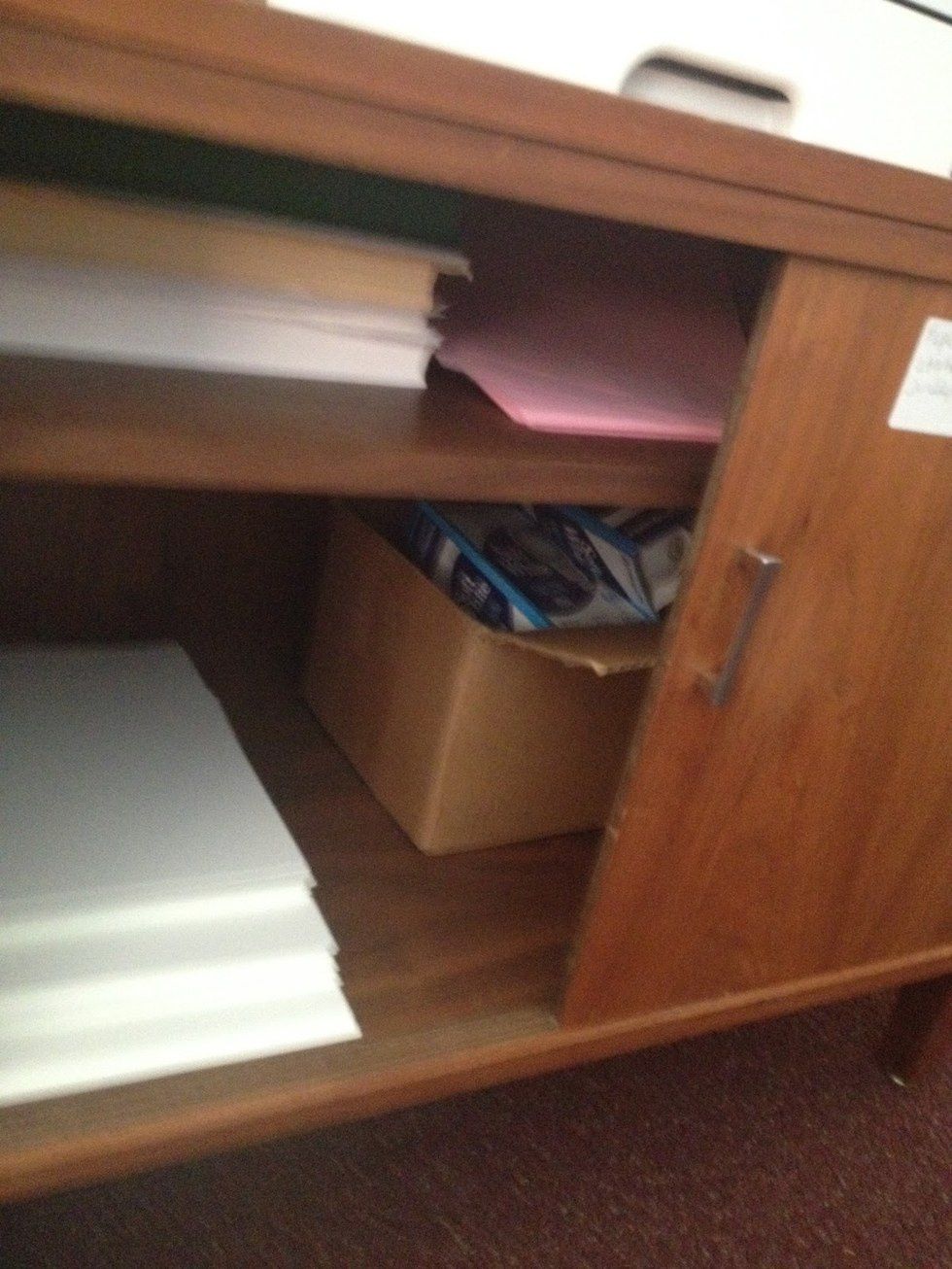
Now, I’ll show you Cabinet Bizet. Like Georges Bizet himself, it was not until the rest of the cabinets were open and organized that we got the key to it. (Bizet didn’t write his most famous work, "Carmen," until very late in his life.)
In here are the pieces that were commissioned for DSU all those years ago. In each drawer that contains music, there is a log of what lives there. (Mainly for my remaining sanity’s sake. I don’t want to get calls asking where stuff is all the time.)
The next cabinet is named Beyonce. I’m not her biggest fan, but she has kind of shaped pop music for the last however many years. There only CDs and records in there, so it’s not that big of a deal.
Cabinets Bach and Beethoven contain four drawers of mass works.
The last cabinet is Berlioz. It’s all by itself awkwardly in the middle of the room, just like Hector Berlioz was all awkward and alone until he married Harriet Smithson, a woman who said she would date him after he wrote my favorite instrumental work ever, "Symphonie Fantastique," for her. In here are two drawers full of recruiting materials and two drawers full of CDs. (Drawers Phil and Collins).
The last item of musical organization is Shelf Brahms.
Unfortunately, that’s about all I can tell you when it comes to the actual organizing. Now, recruiting help? I've got you there.
In school choirs, there are often people who miss lots of rehearsals. It’s inevitable. Sickness, late nights, forgetfulness.
But when they get a grade for your class, usually the grading policy goes a little something like this:
0-3 absences=A
4=B
5=C
6=D
7=F
Usually, there’s also a tardy policy, which for most schools is two to three tardies=absence.
So, within two weeks, there are people who already are at their absence limit and can’t get sick without dropping a letter grade.
I instituted something of a work plan for my school. For every absence, there was a two-hour work penalty in the library. Those hours did not have to be consecutive, but they did have to be worked off. For those with an, “I don’t ever have any time free for longer than an hour!” excuse, I came up with what I call “The Liszt.”
Each of these items is worth 15 minutes. Those highlighted in yellow are larger items, so they are worth an hour each. Here are a bunch of pictures of all the stuff I got people to bring.
Those cleaning supplies are housed in Cabinet Opus, which is a word that means work.
We also, in the Delta State University Chorale, have a mission statement.
The Delta Chorale seeks to enrich the musical, educational and cultural lives of our campus and our community through excellence in choral music performance. With diverse choral literature, we sing these truths:
- When confronted by poverty, we sing that true wealth cannot be measured by dollars and cents.
- When confronted by need, we sing that music belongs to everyone.
- When confronted by racism, we sing that all people possess equal and inherent human worth.
- When confronted by ignorance, we sing that artistic expression and opportunity lead to understanding.
- When confronted by strife, we sing that peace is the better way.
- When confronted by division, we sing and model unity in community despite our differences.
We are the Delta Chorale.
As soon as I read it, I knew I wanted that on display in the library. So, I made it happen in exchange for absences.
I absolutely love my choral library. For a while, though, it wasn’t just a library. It was a place I came to make the world stop. If it hasn’t been made clear to you, the folks at DSU had a rough year. So much happened, and I wasn’t ok for a while. I took over what used to house the card catalog system, and the top half became my candy drawers. I also have a message board with important announcements. It currently is a hilarious voice lesson quote board.
